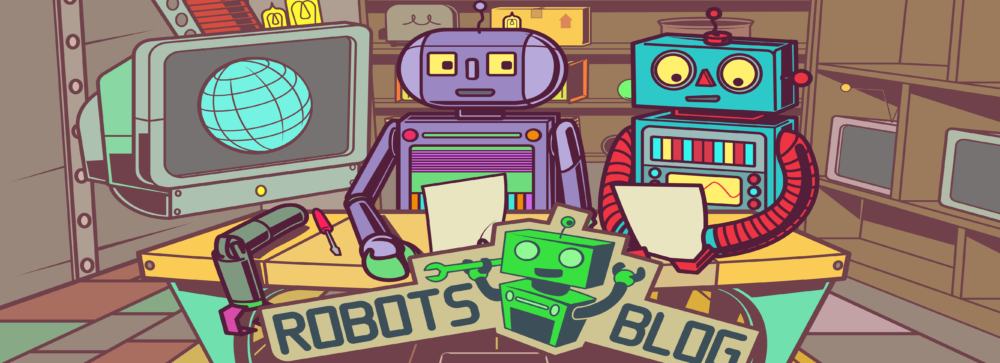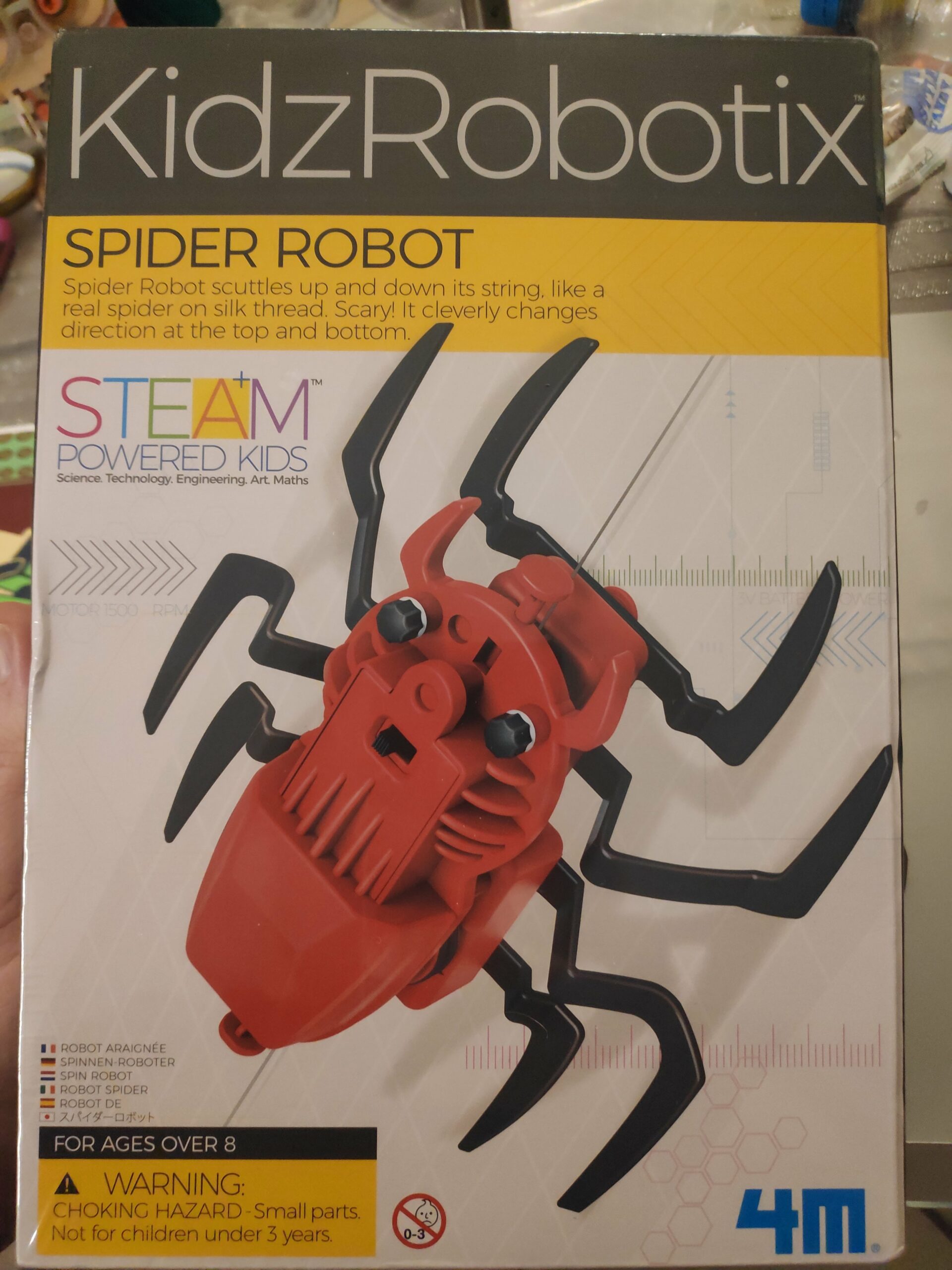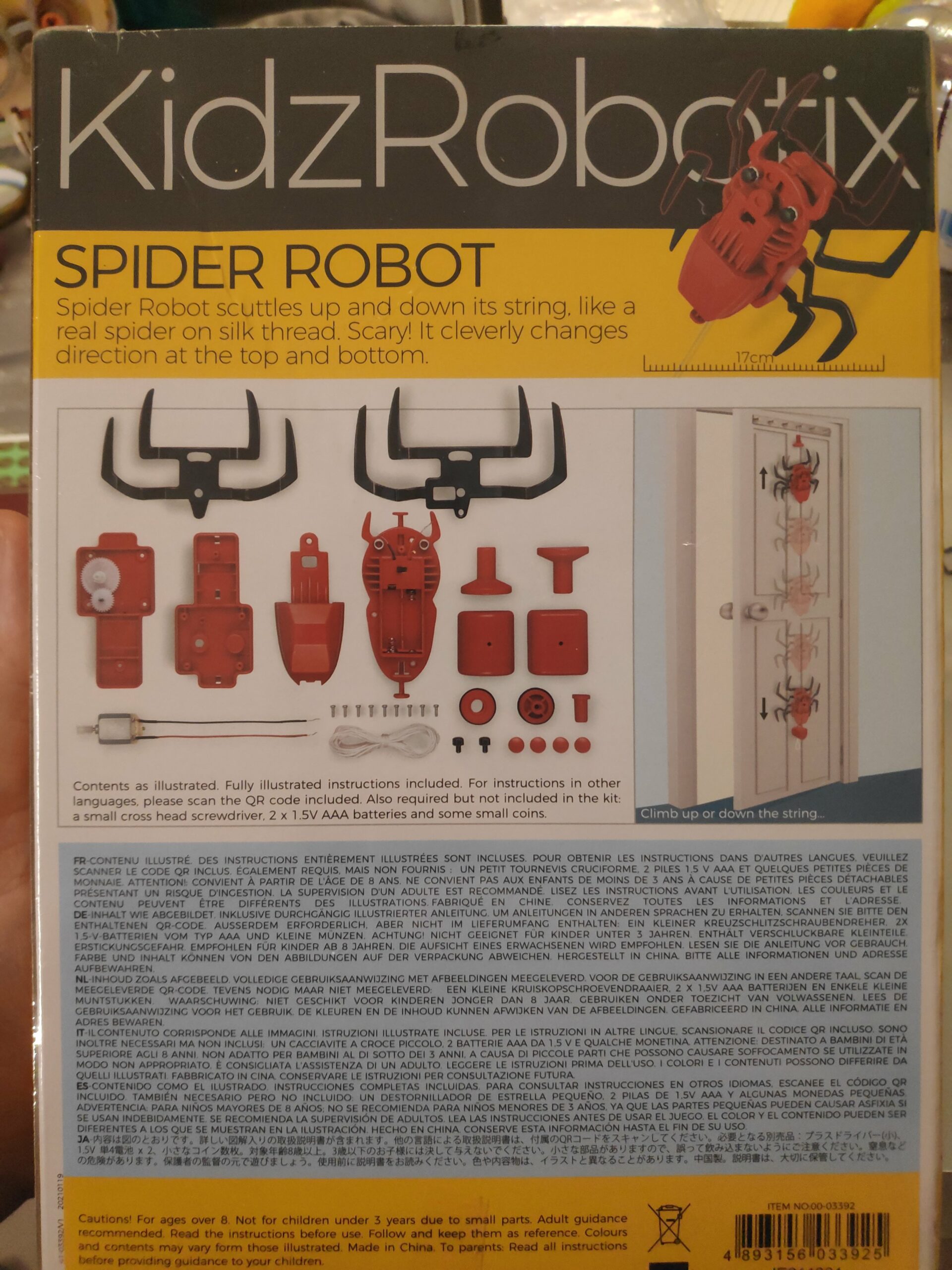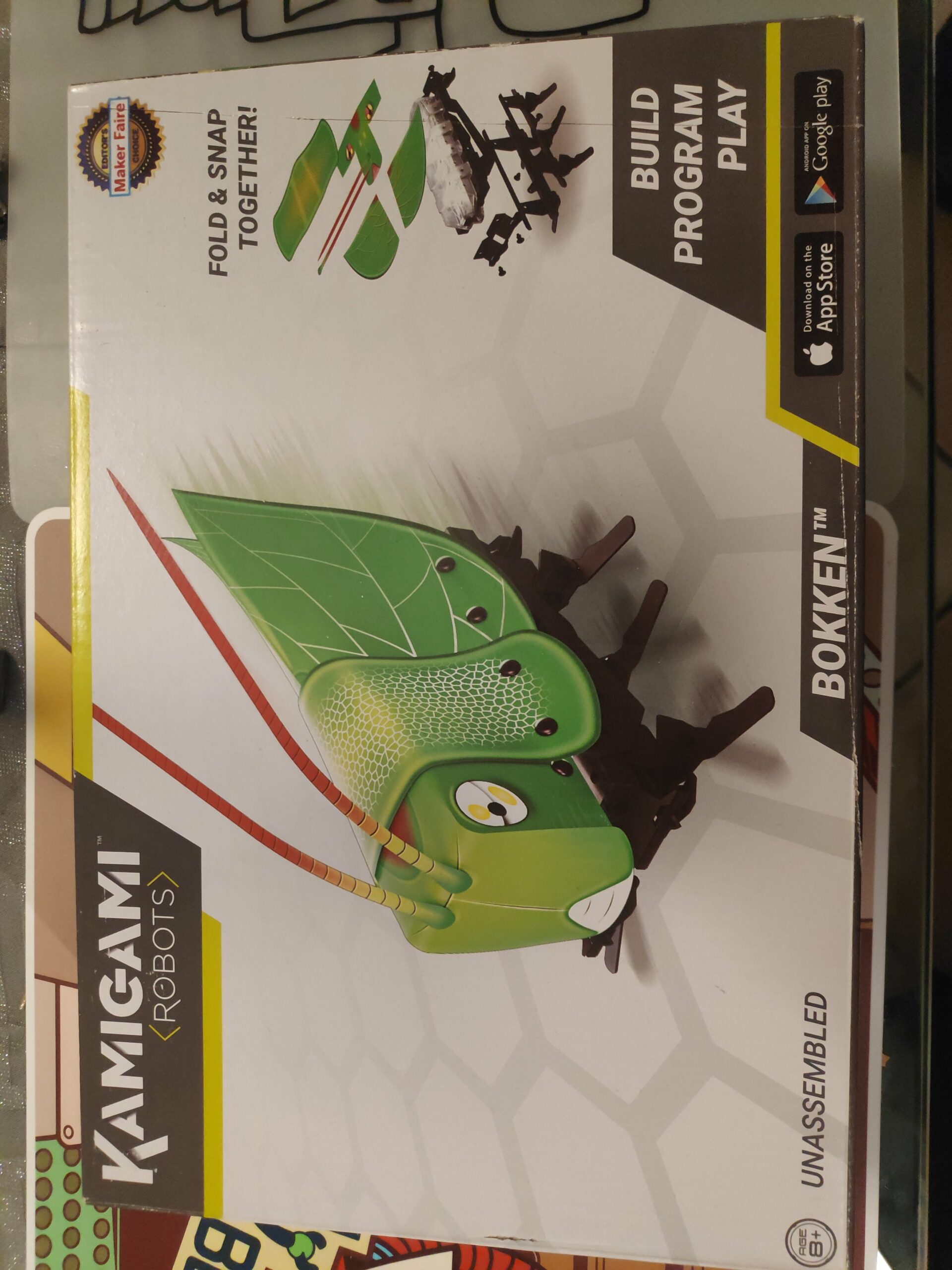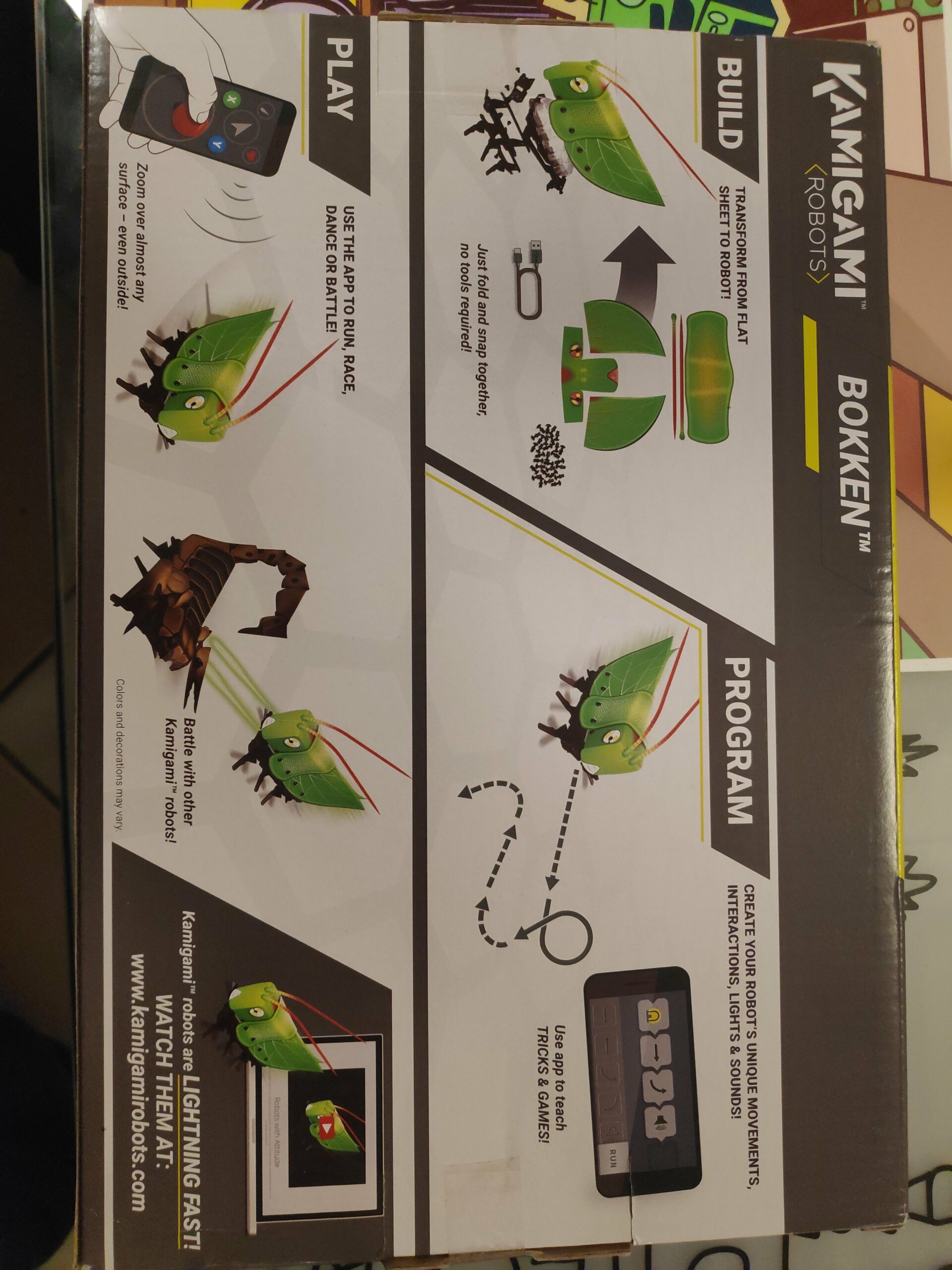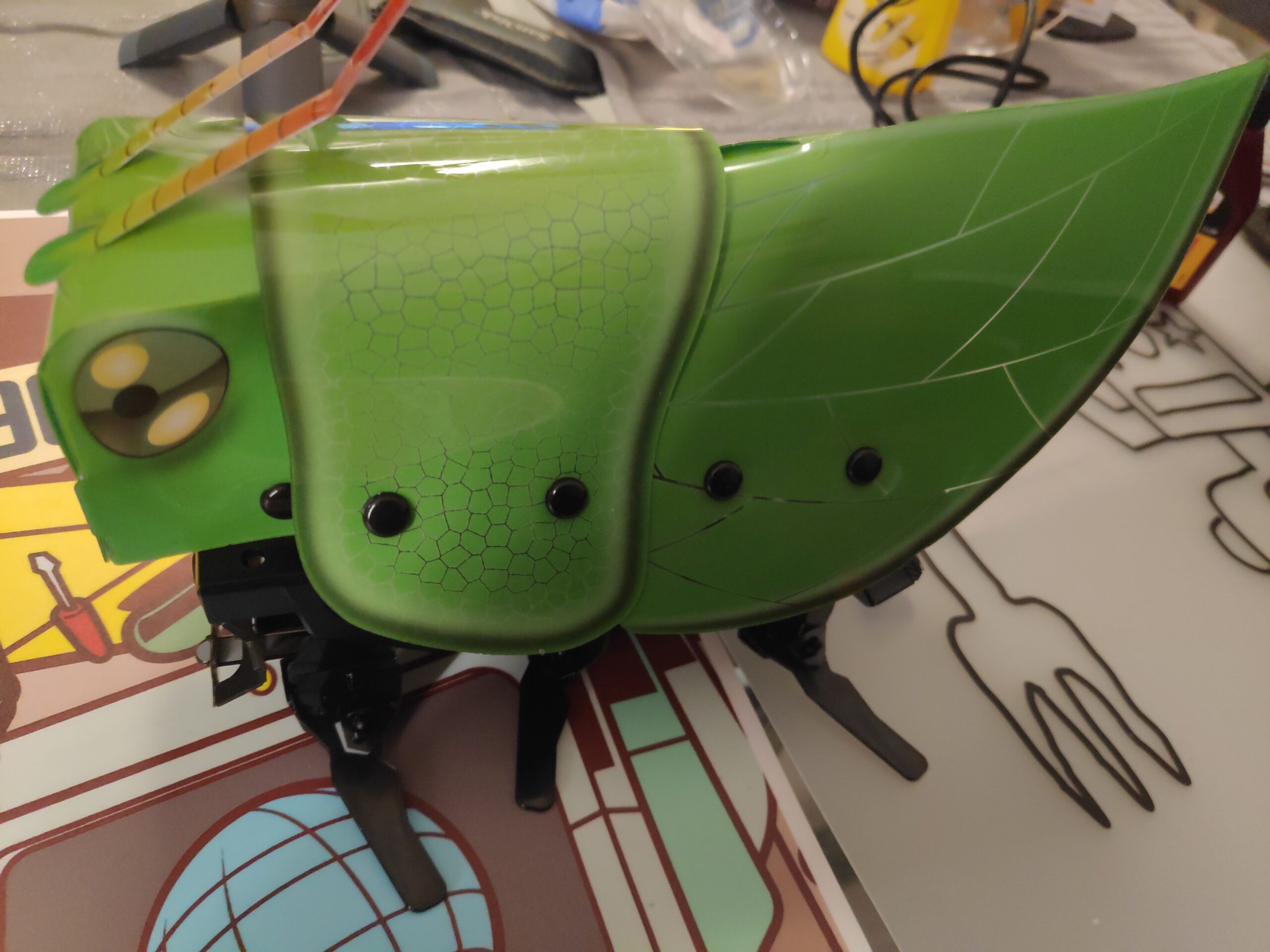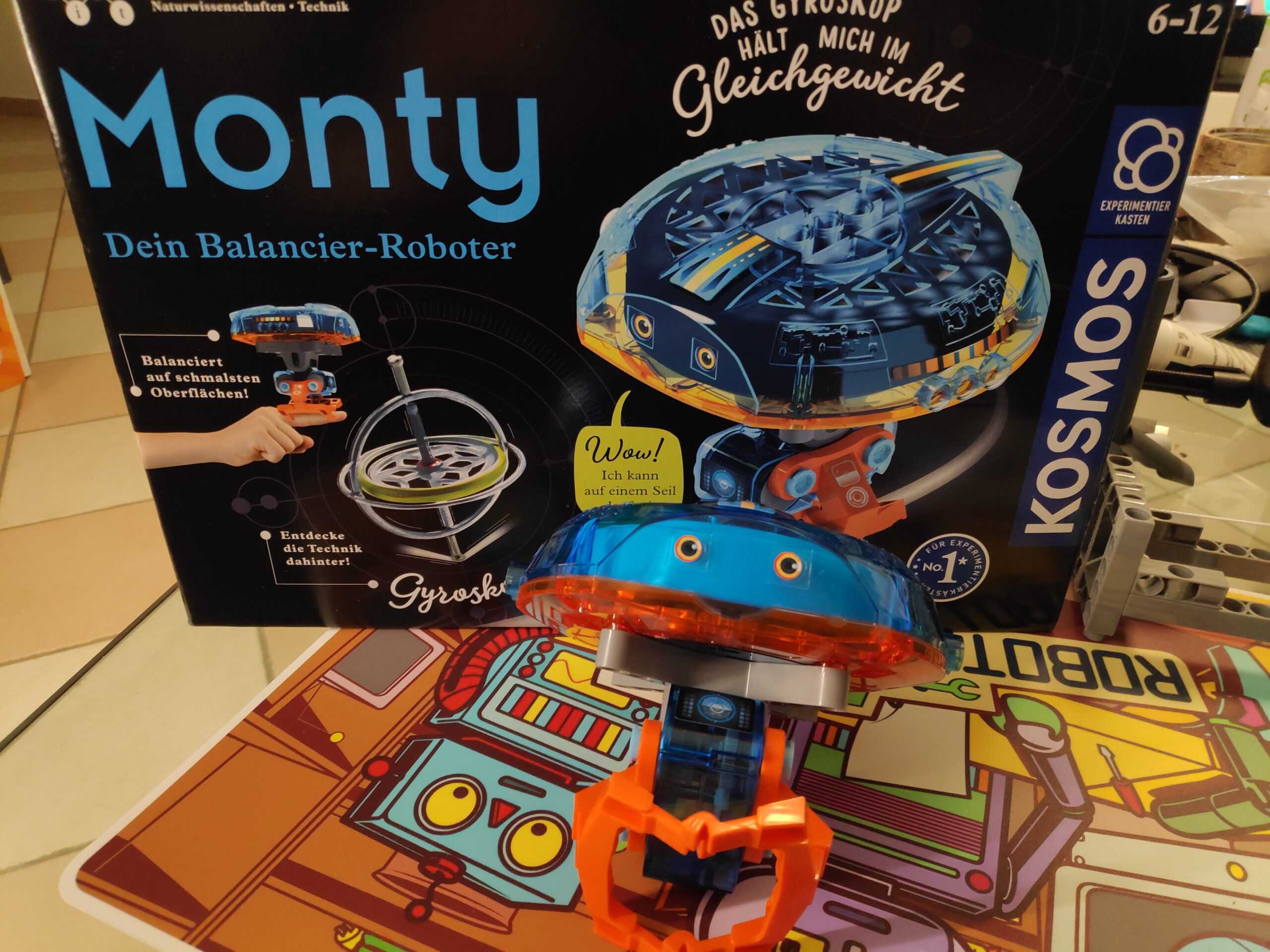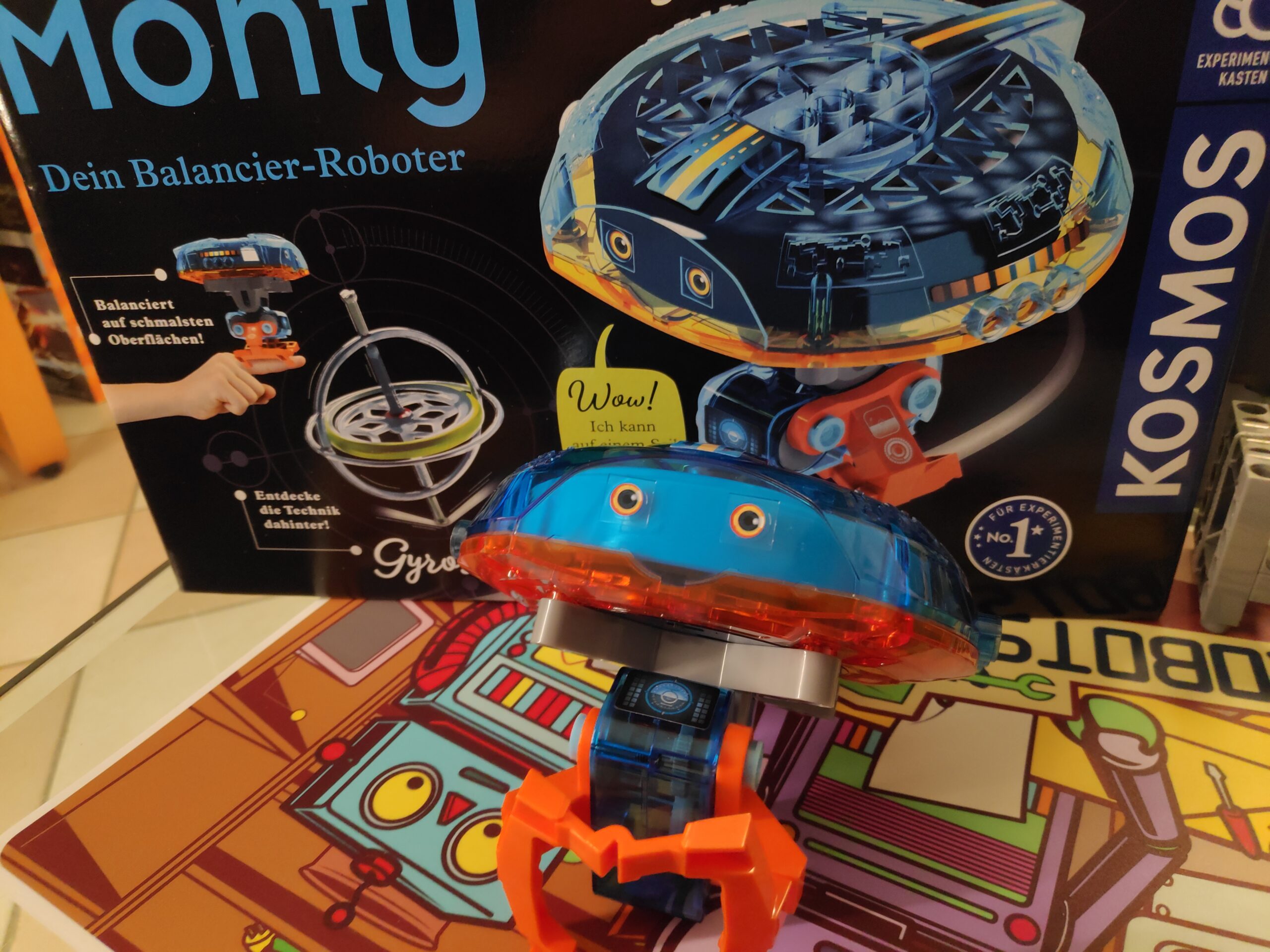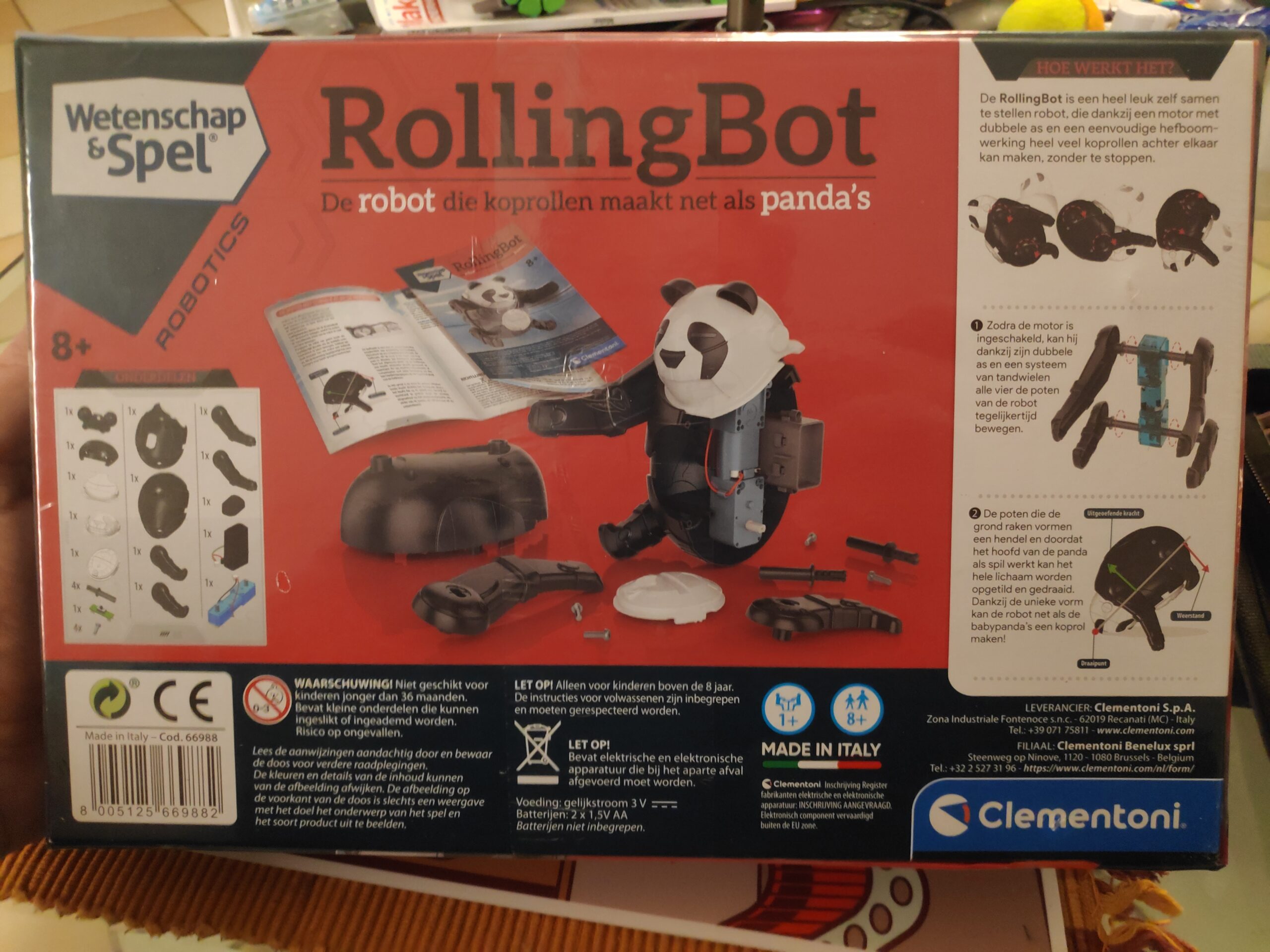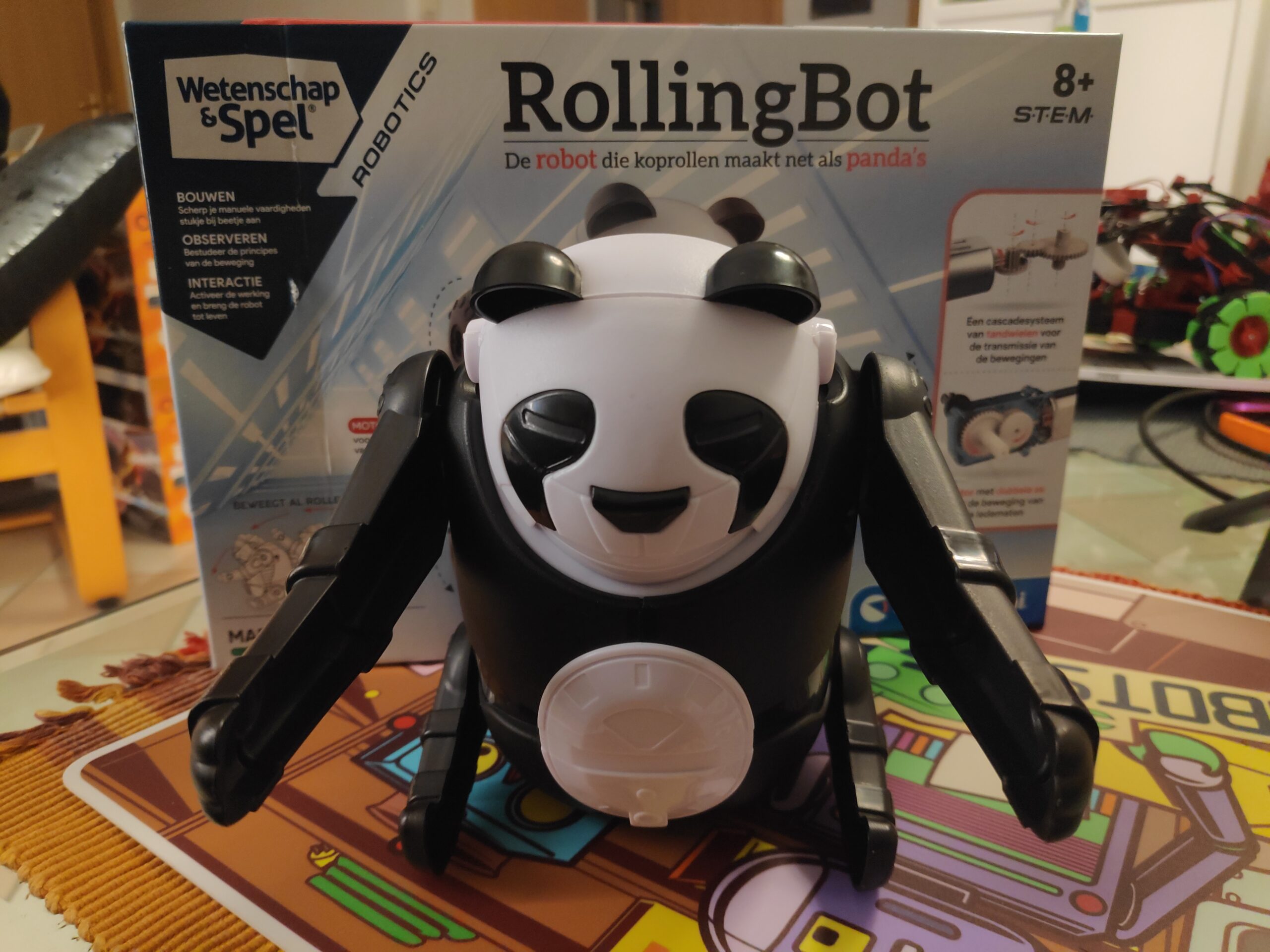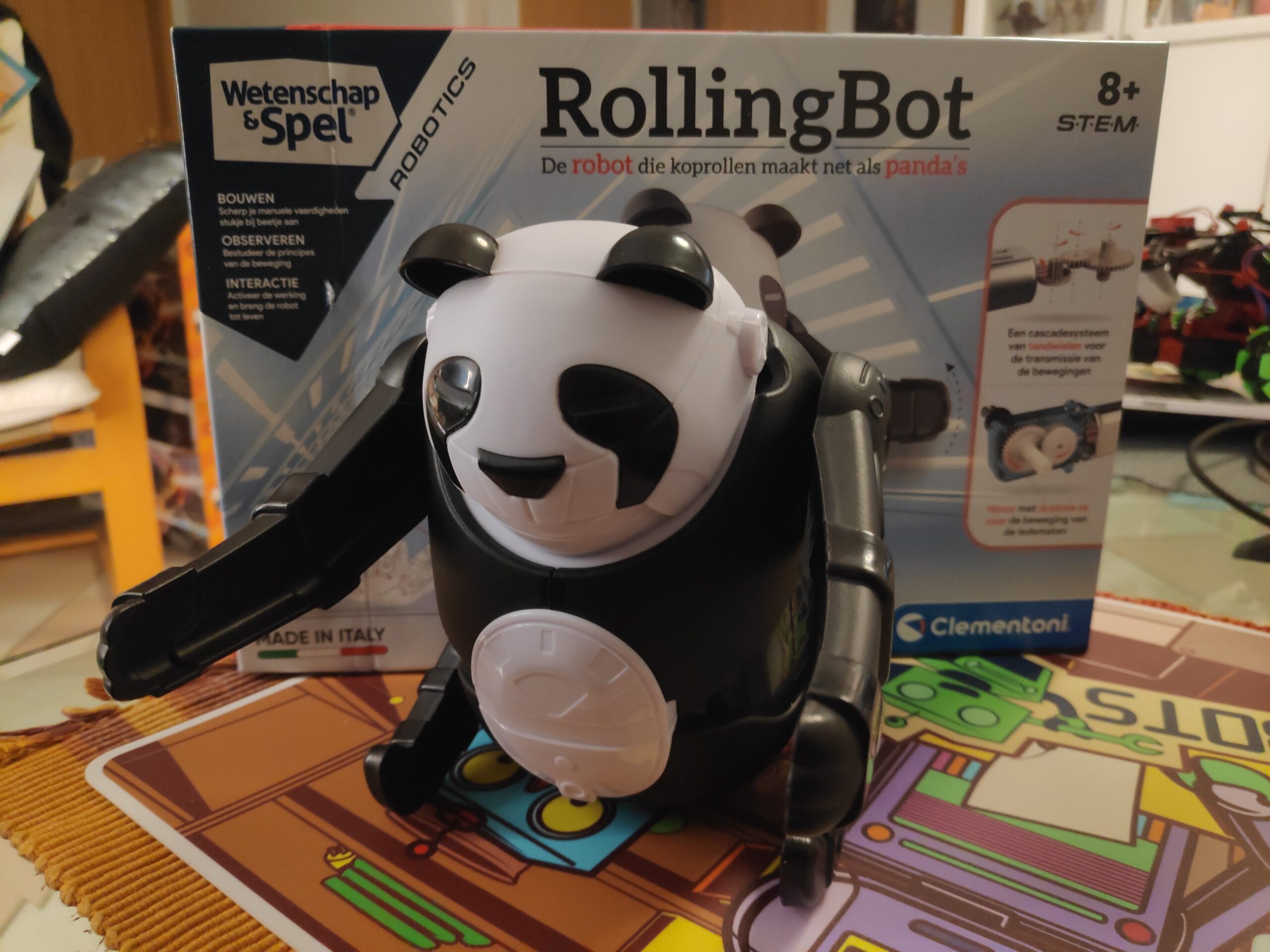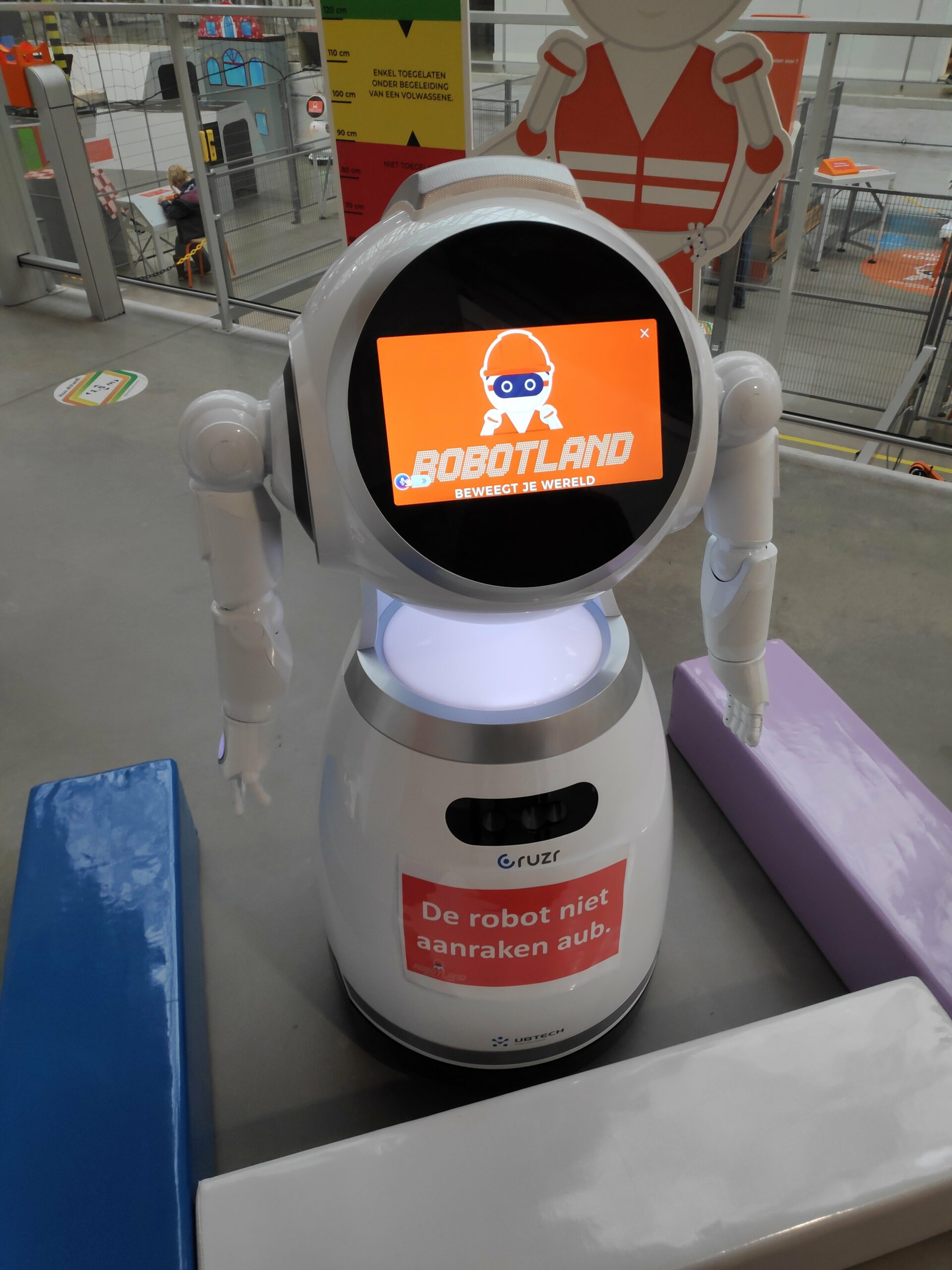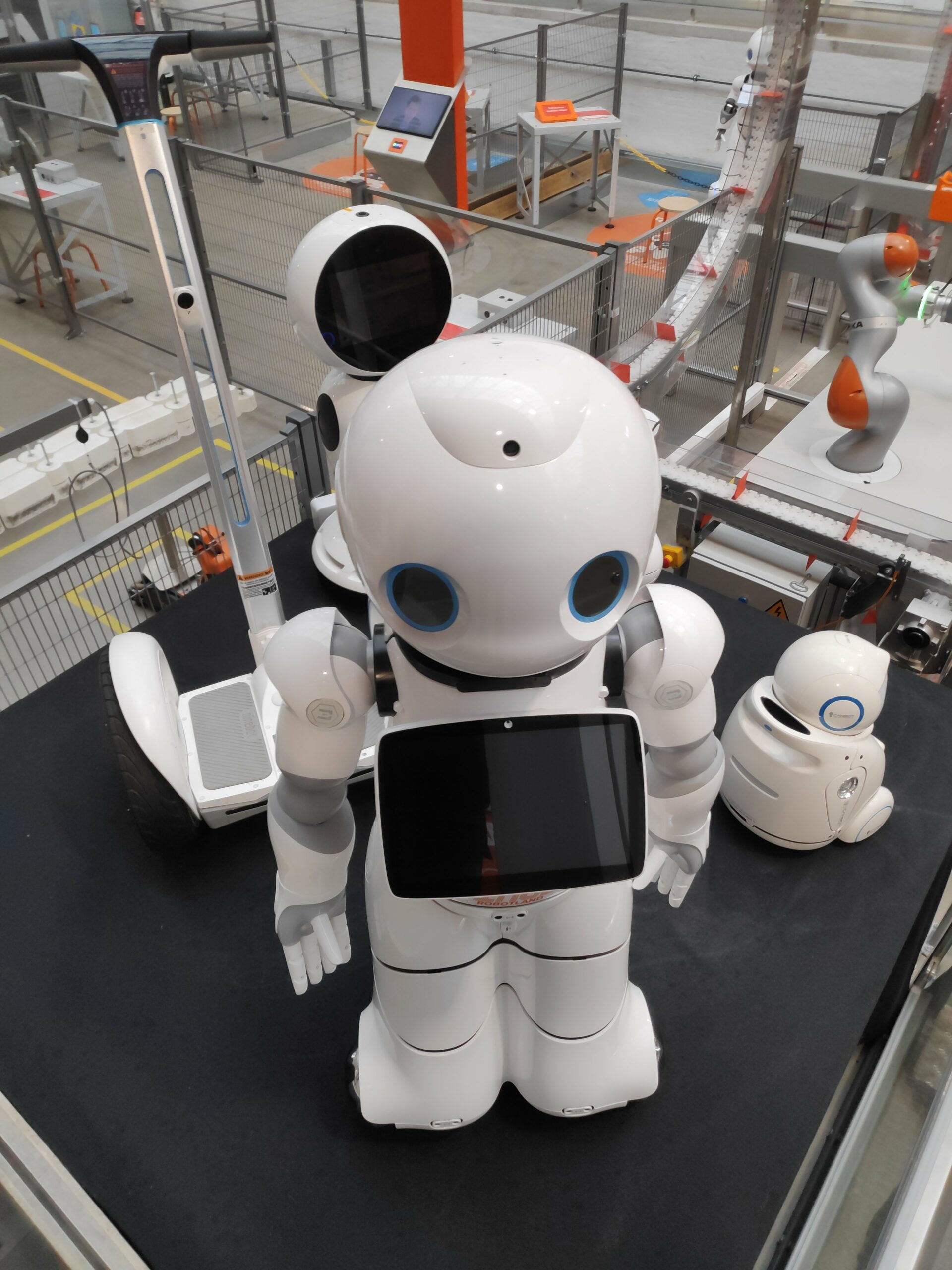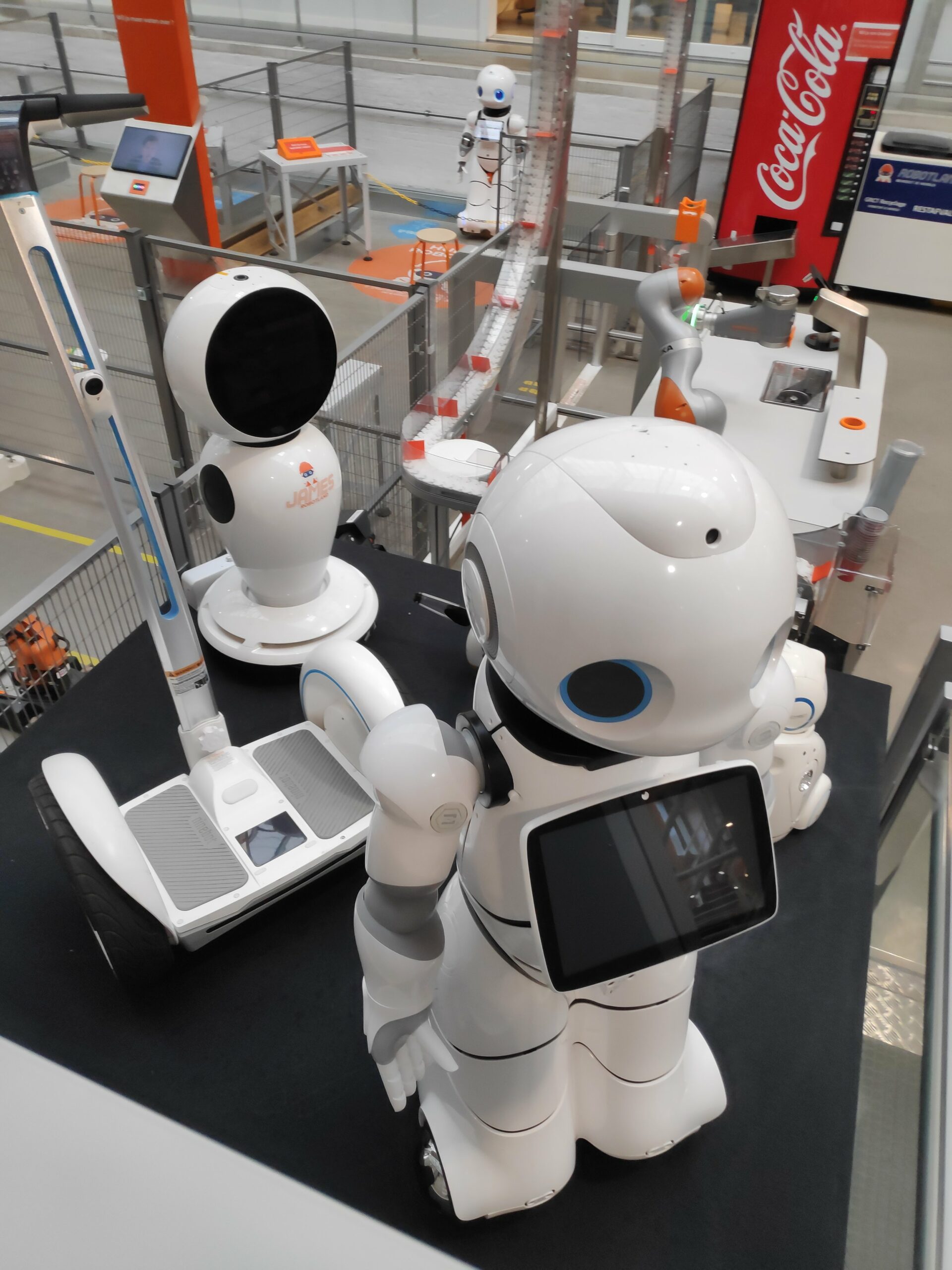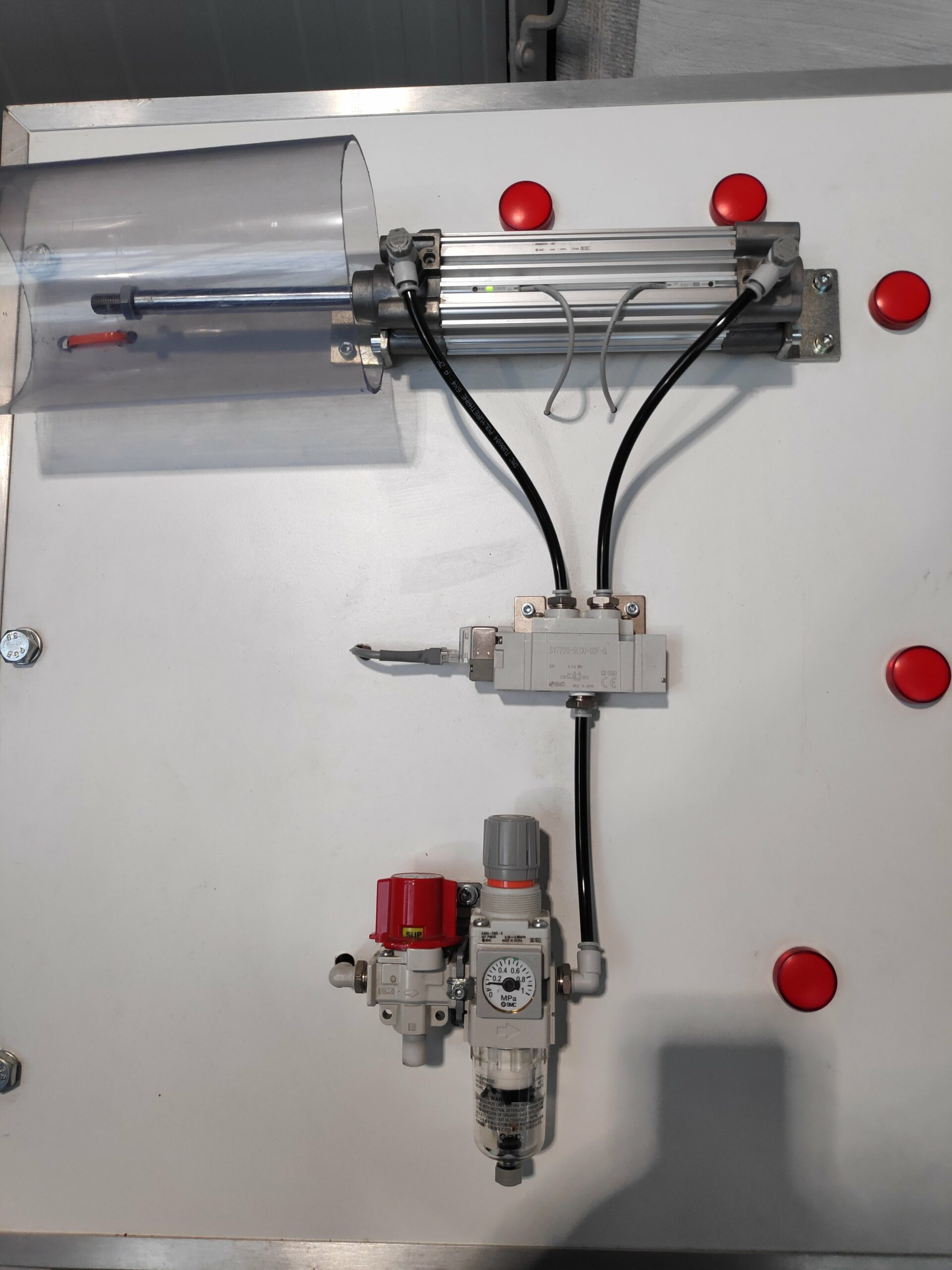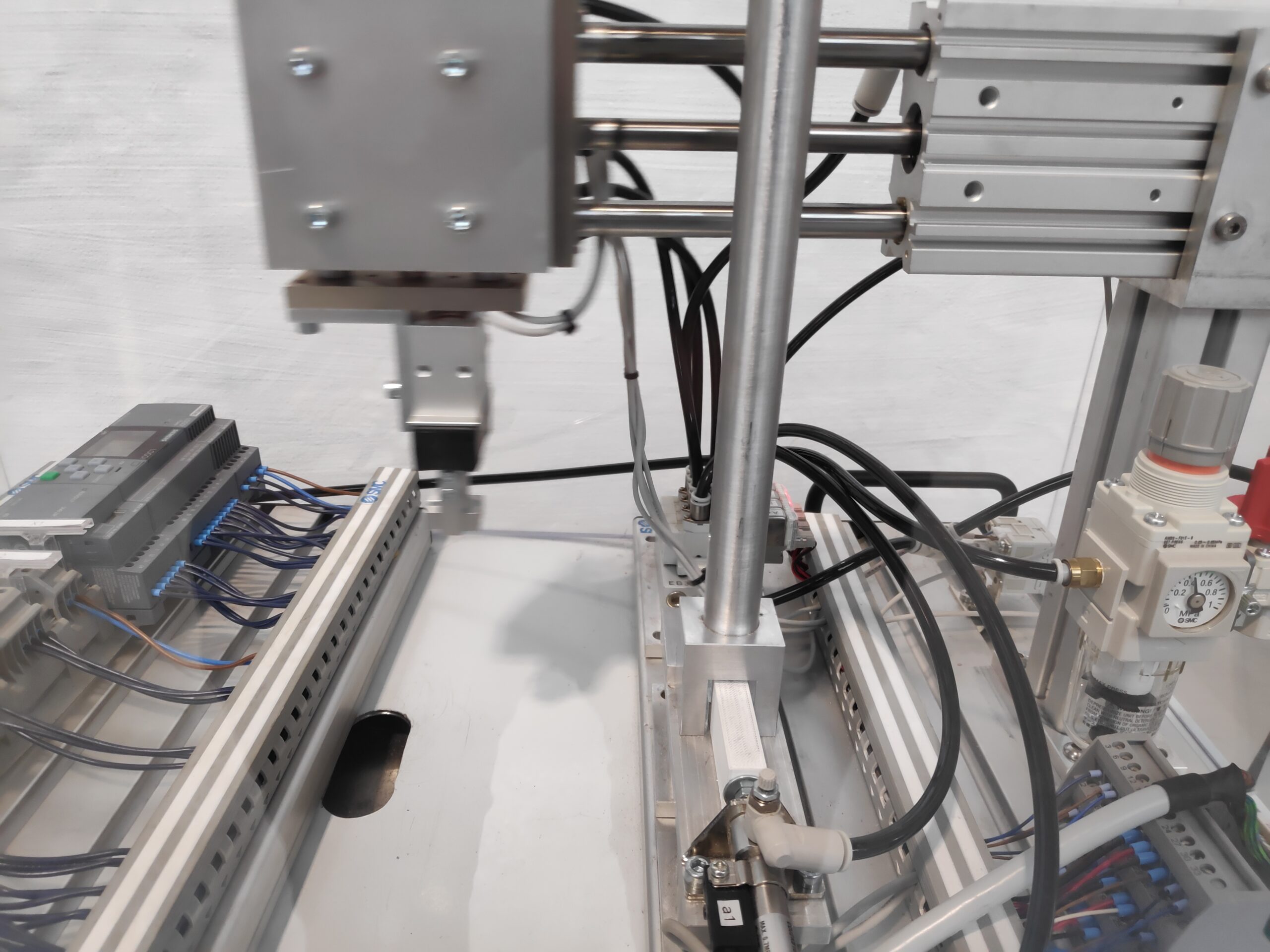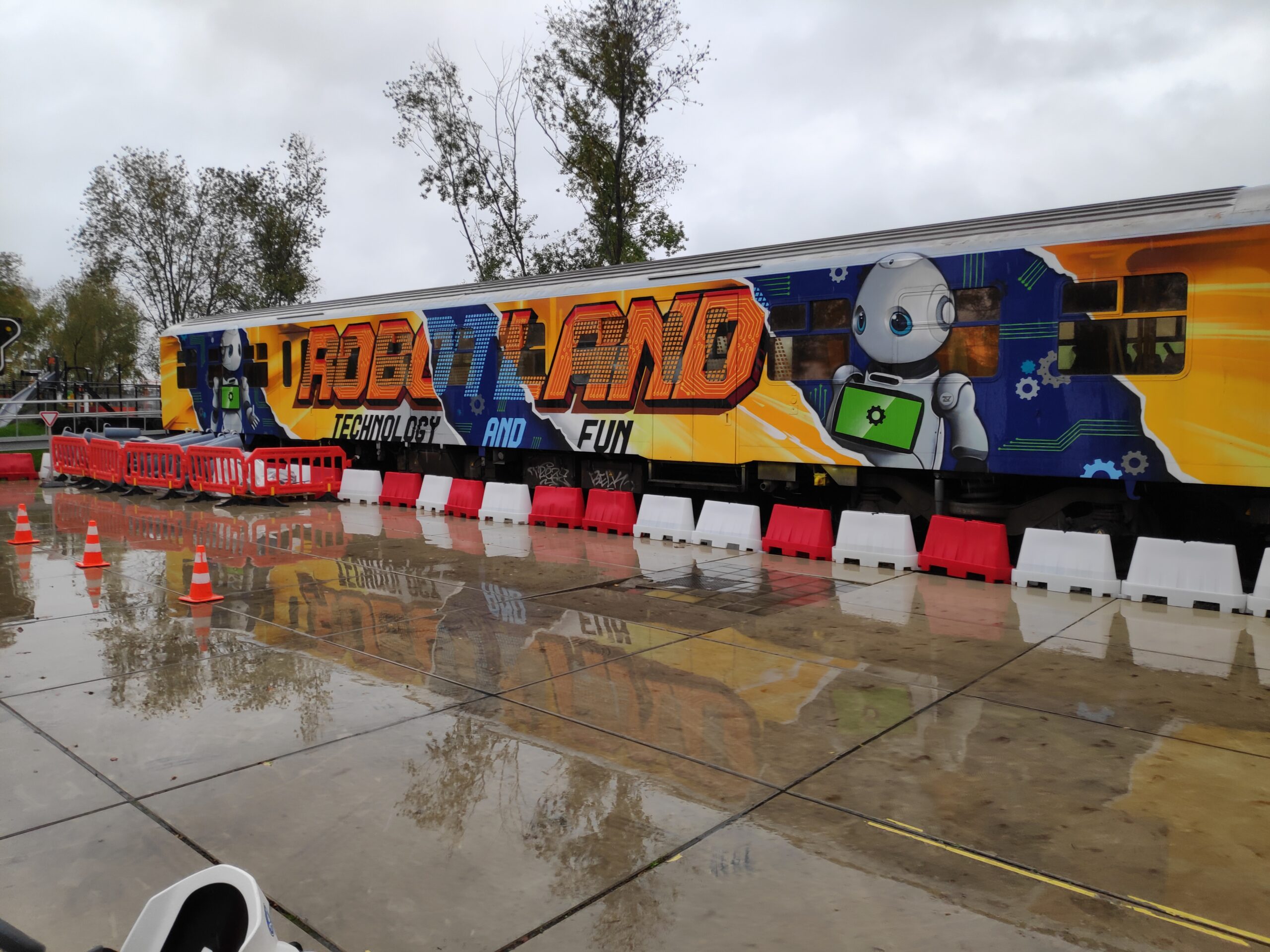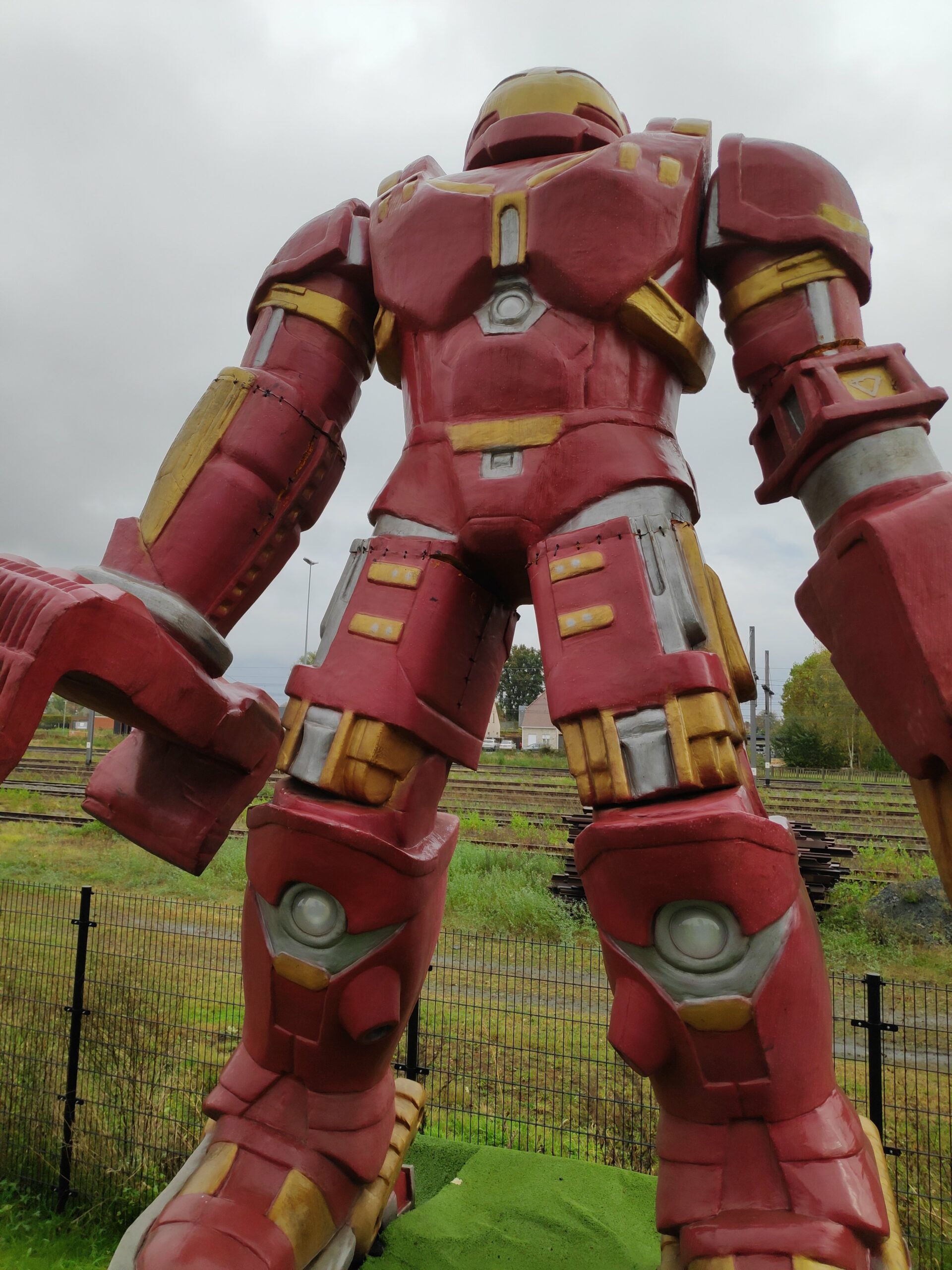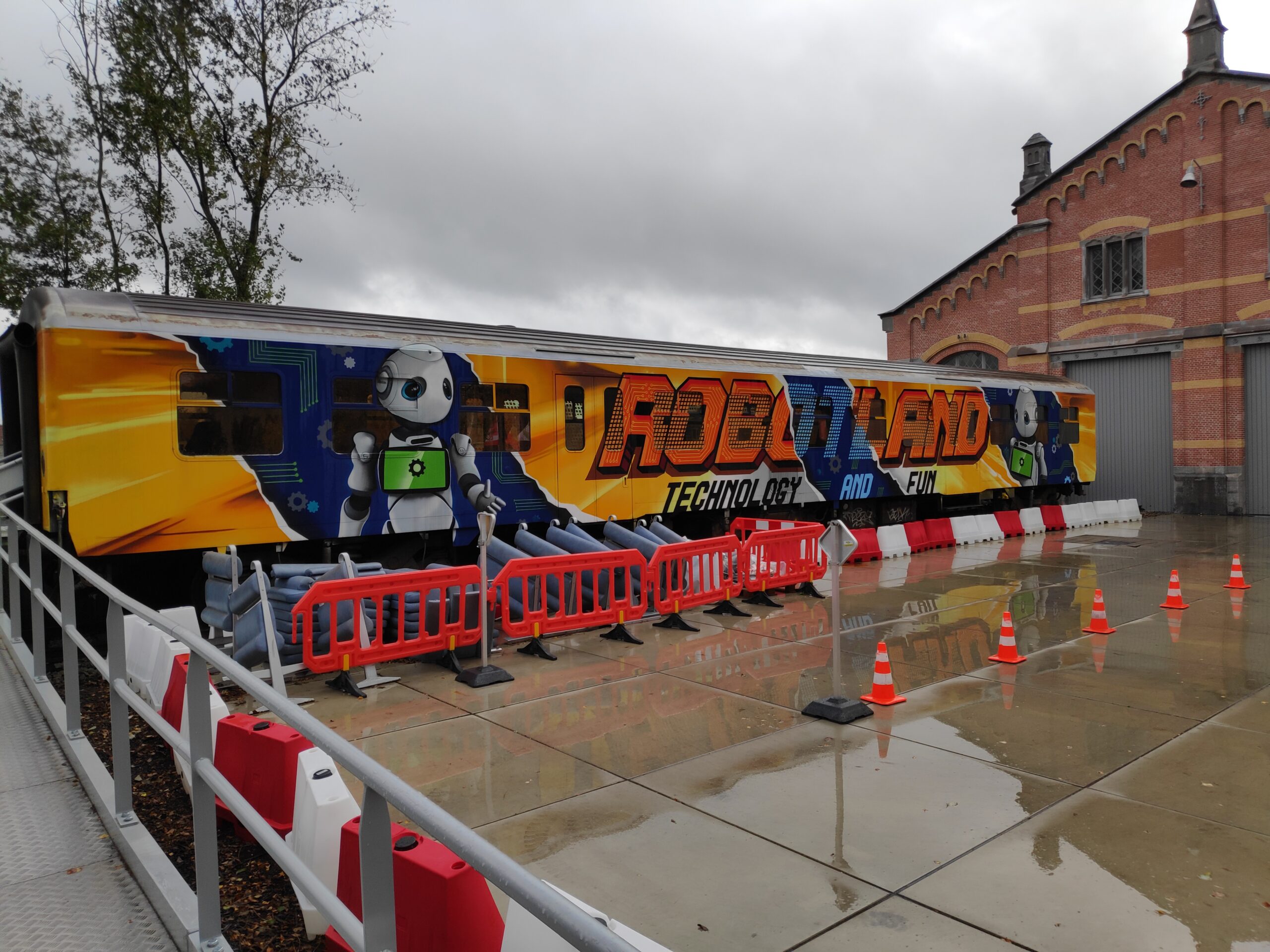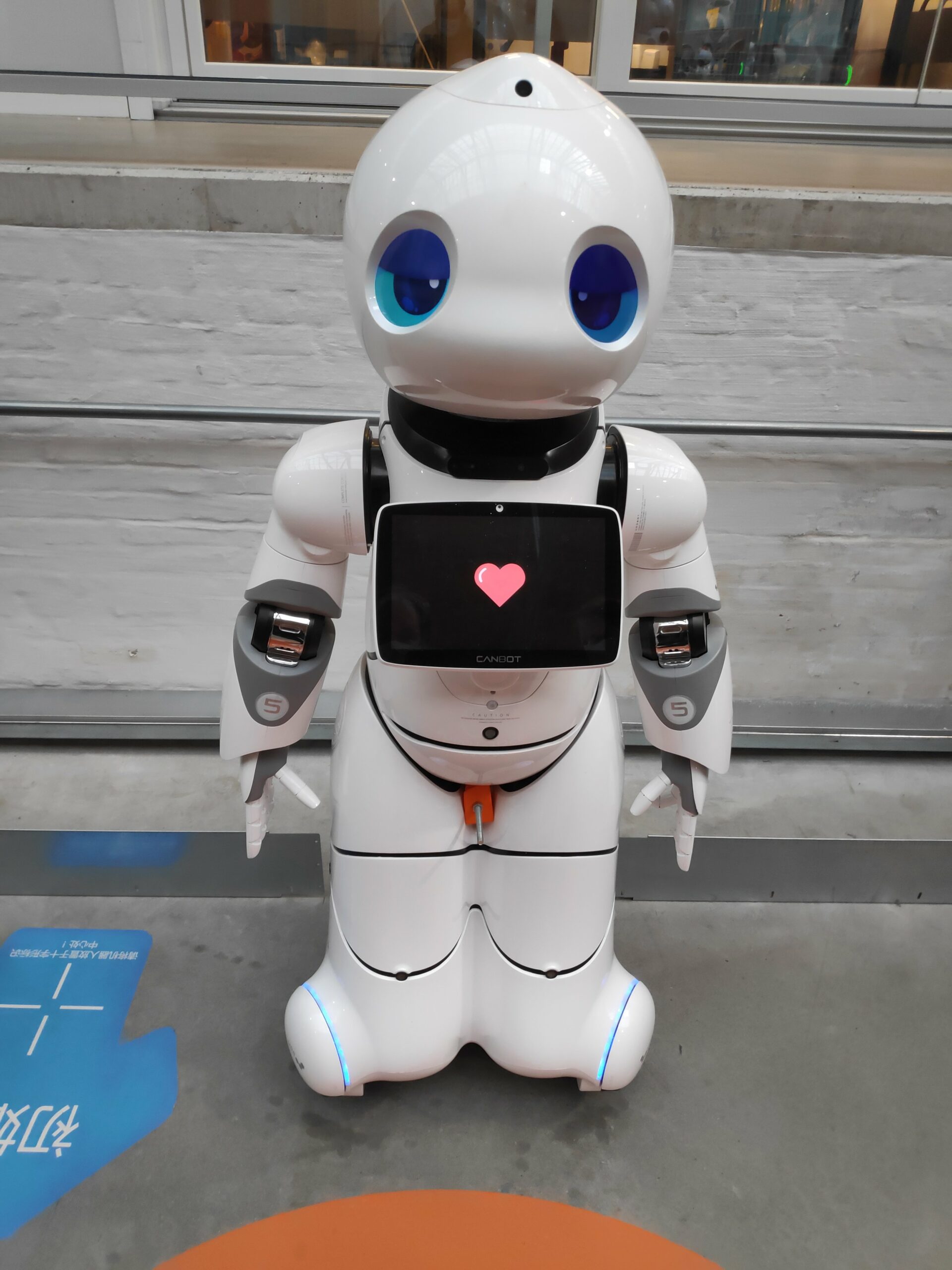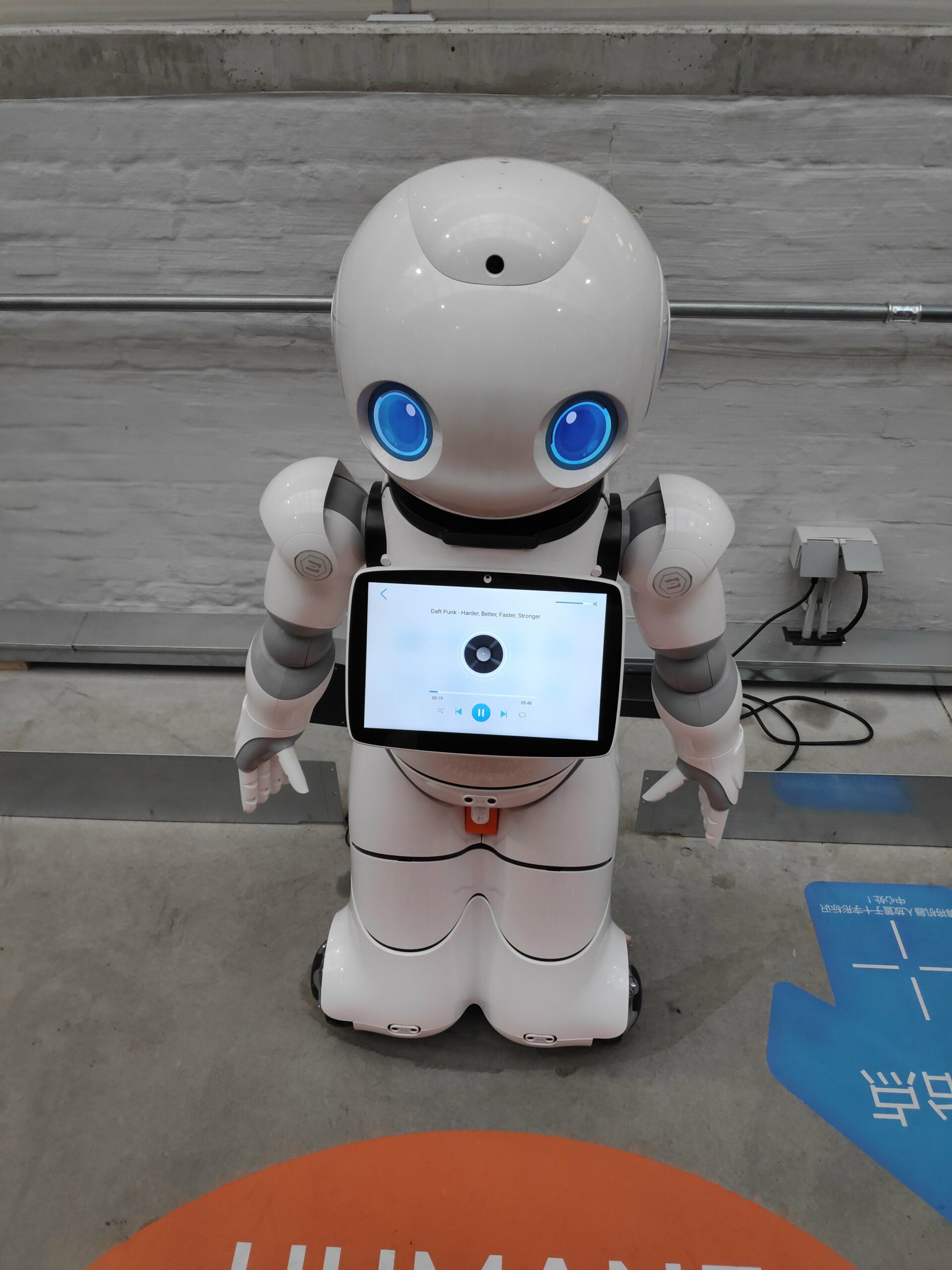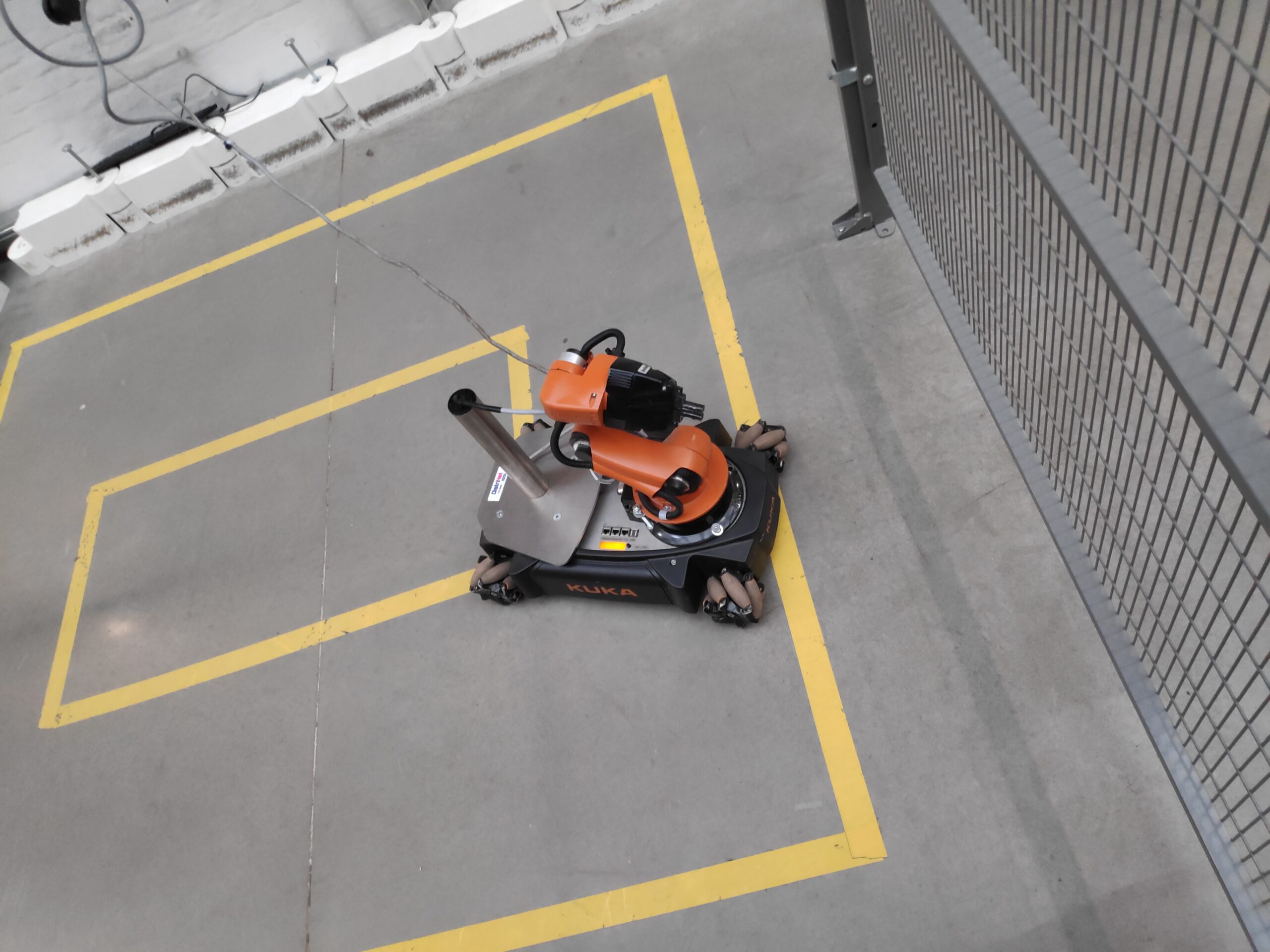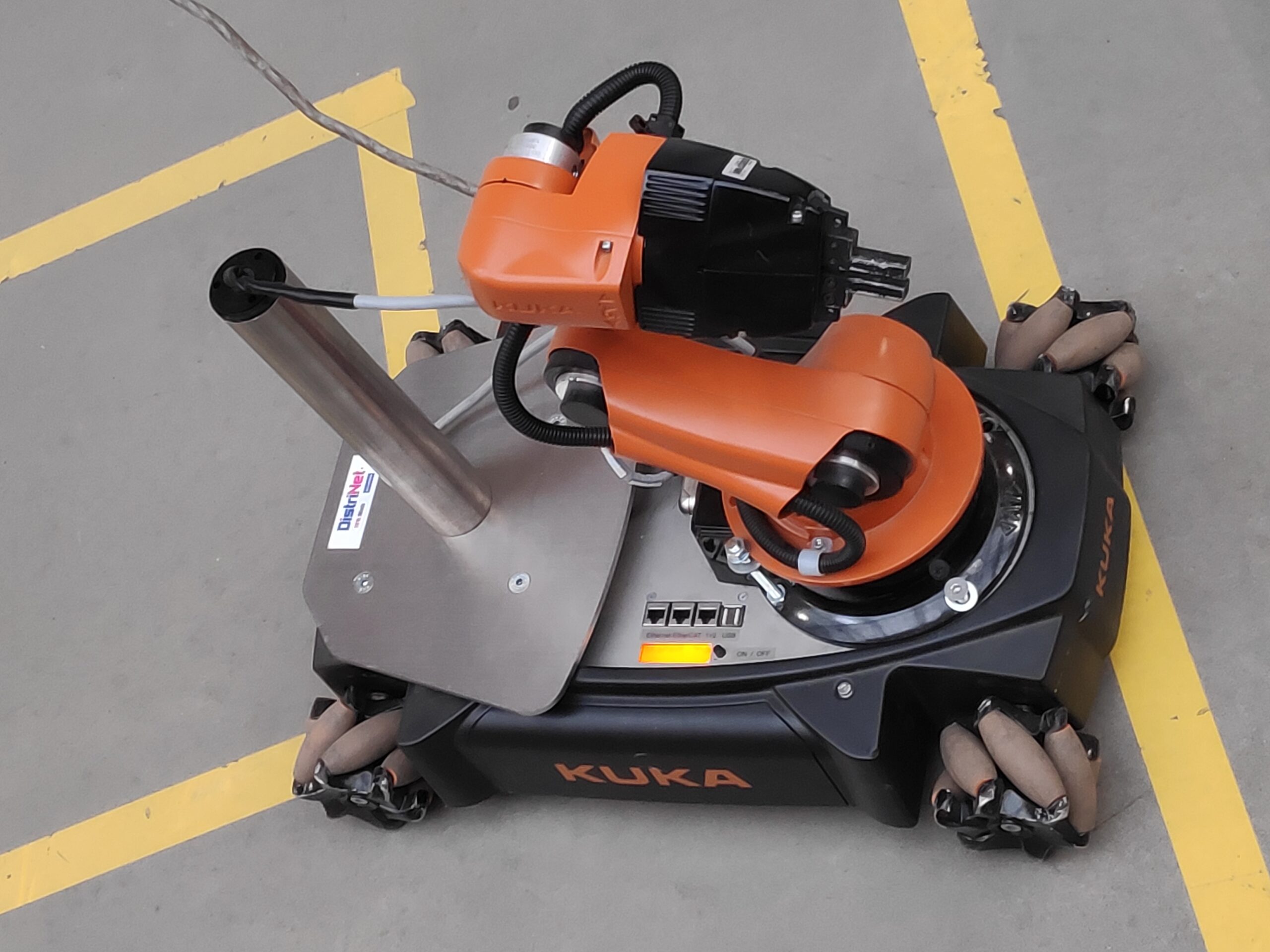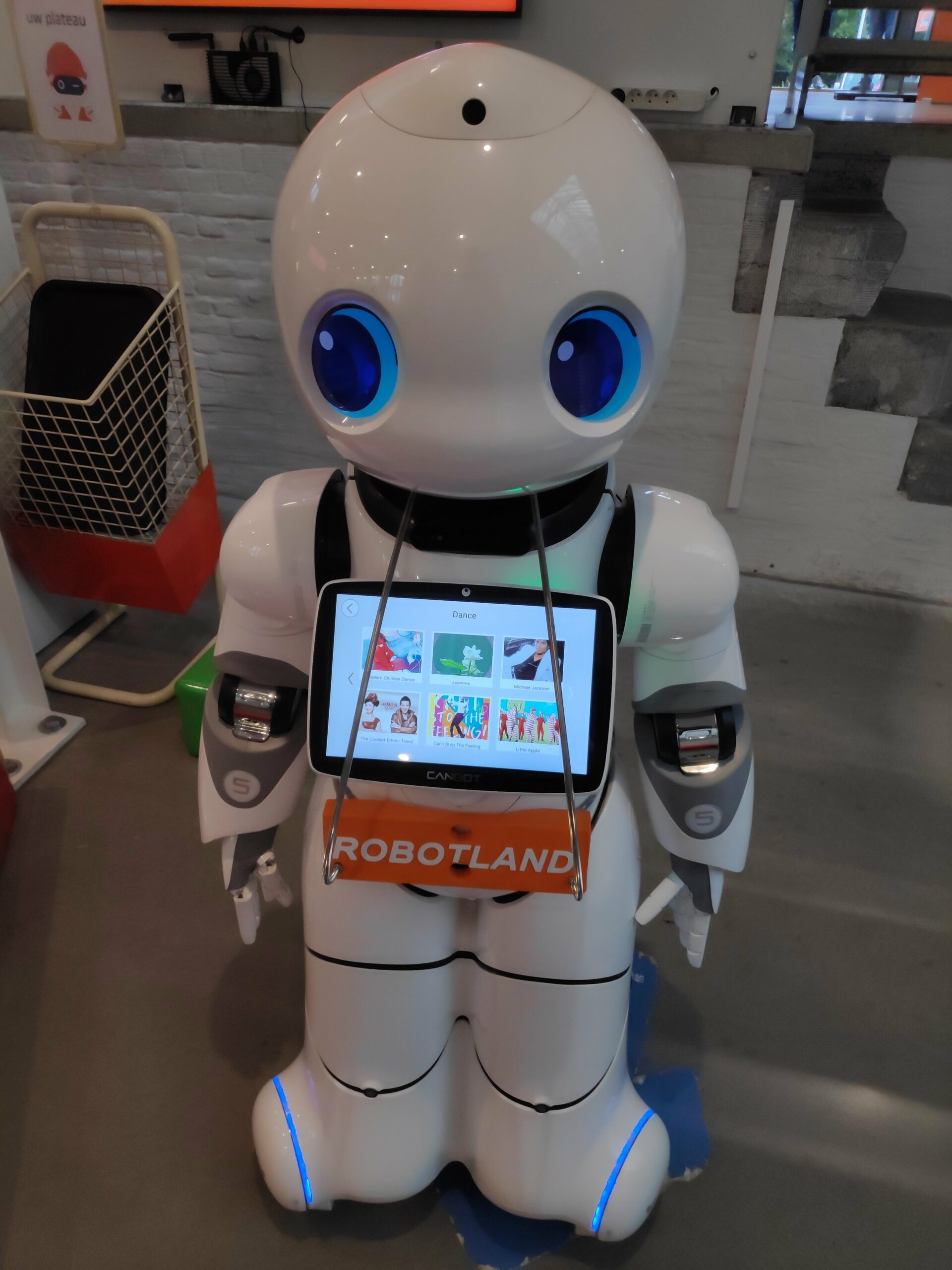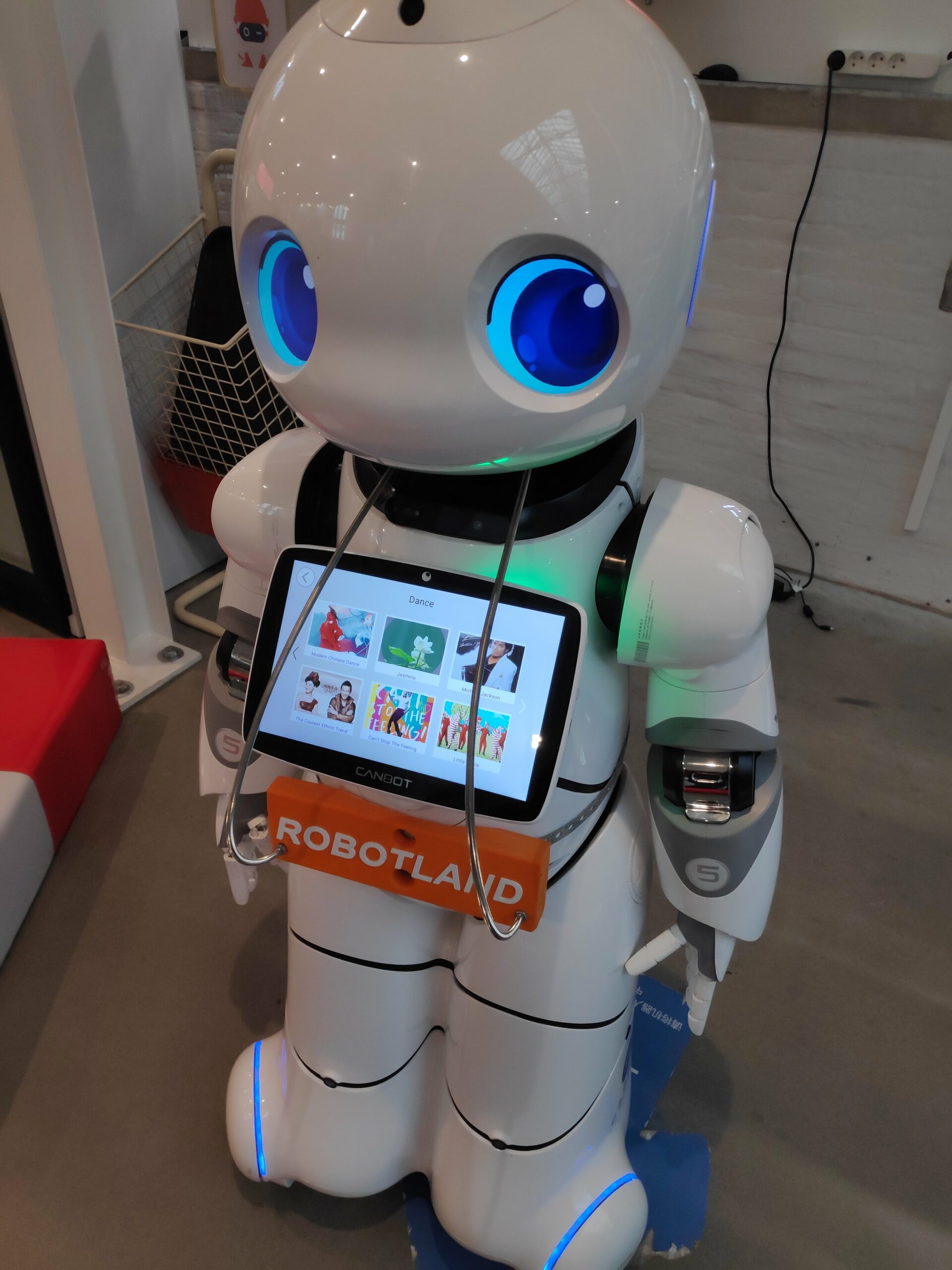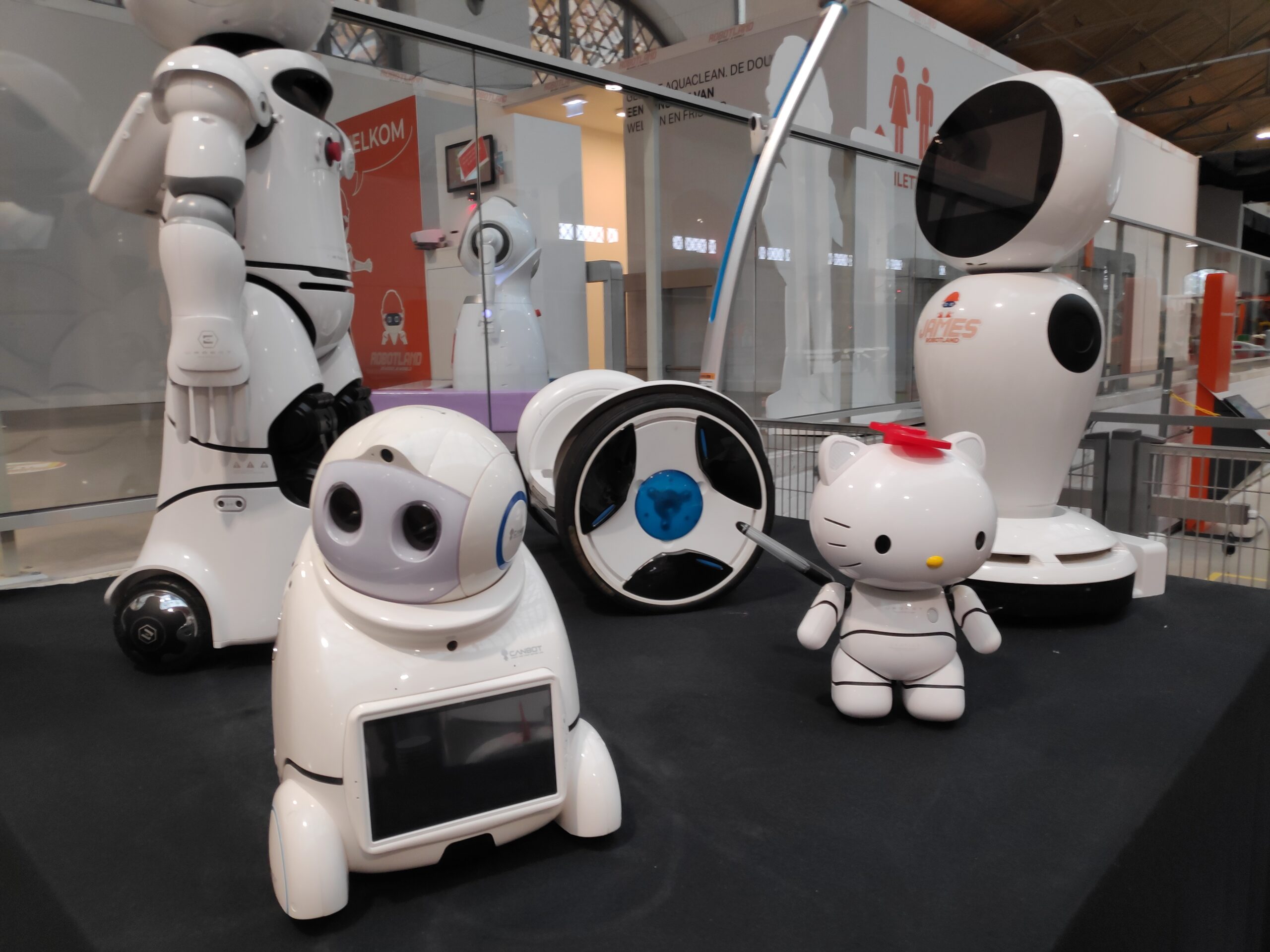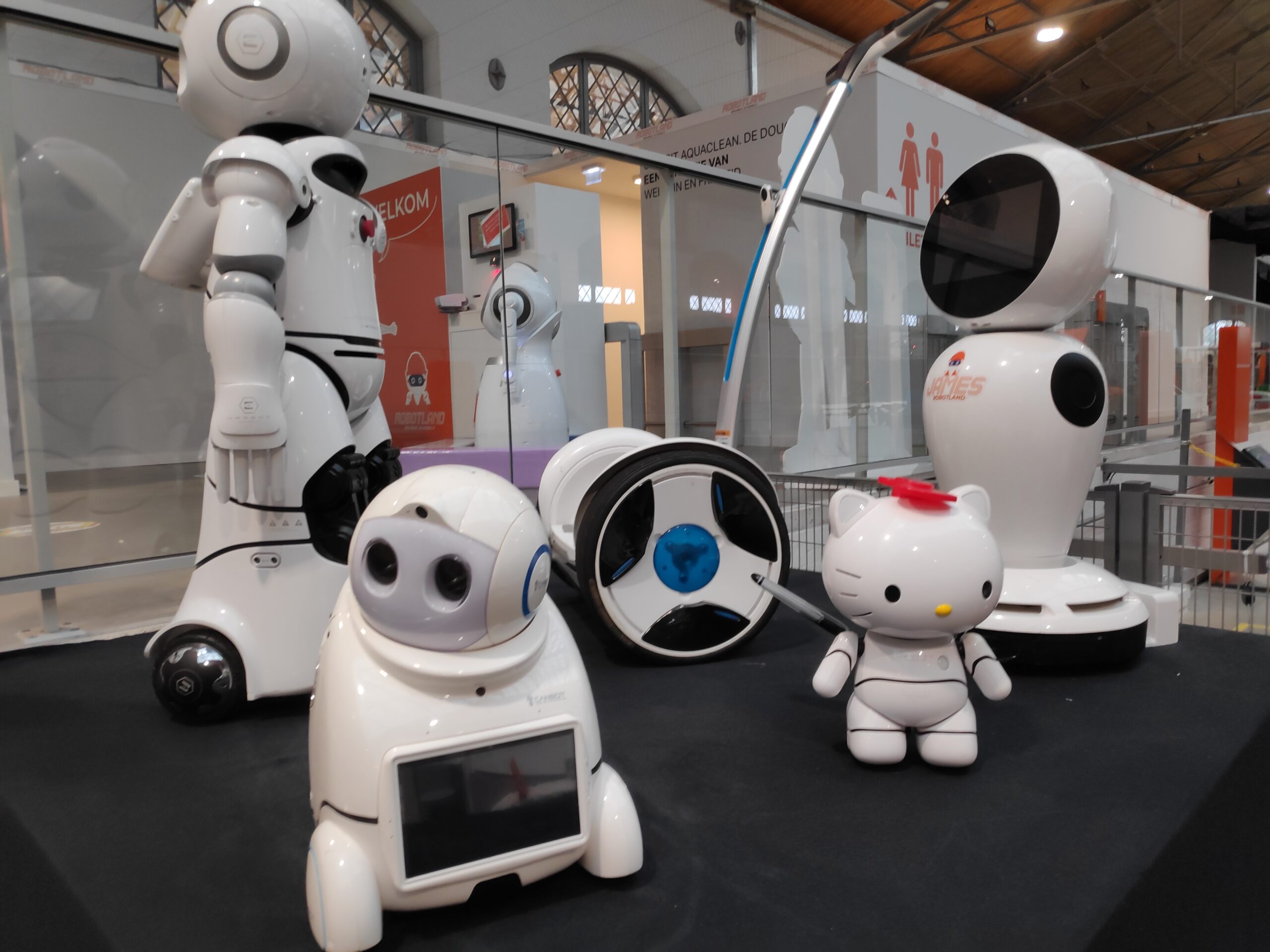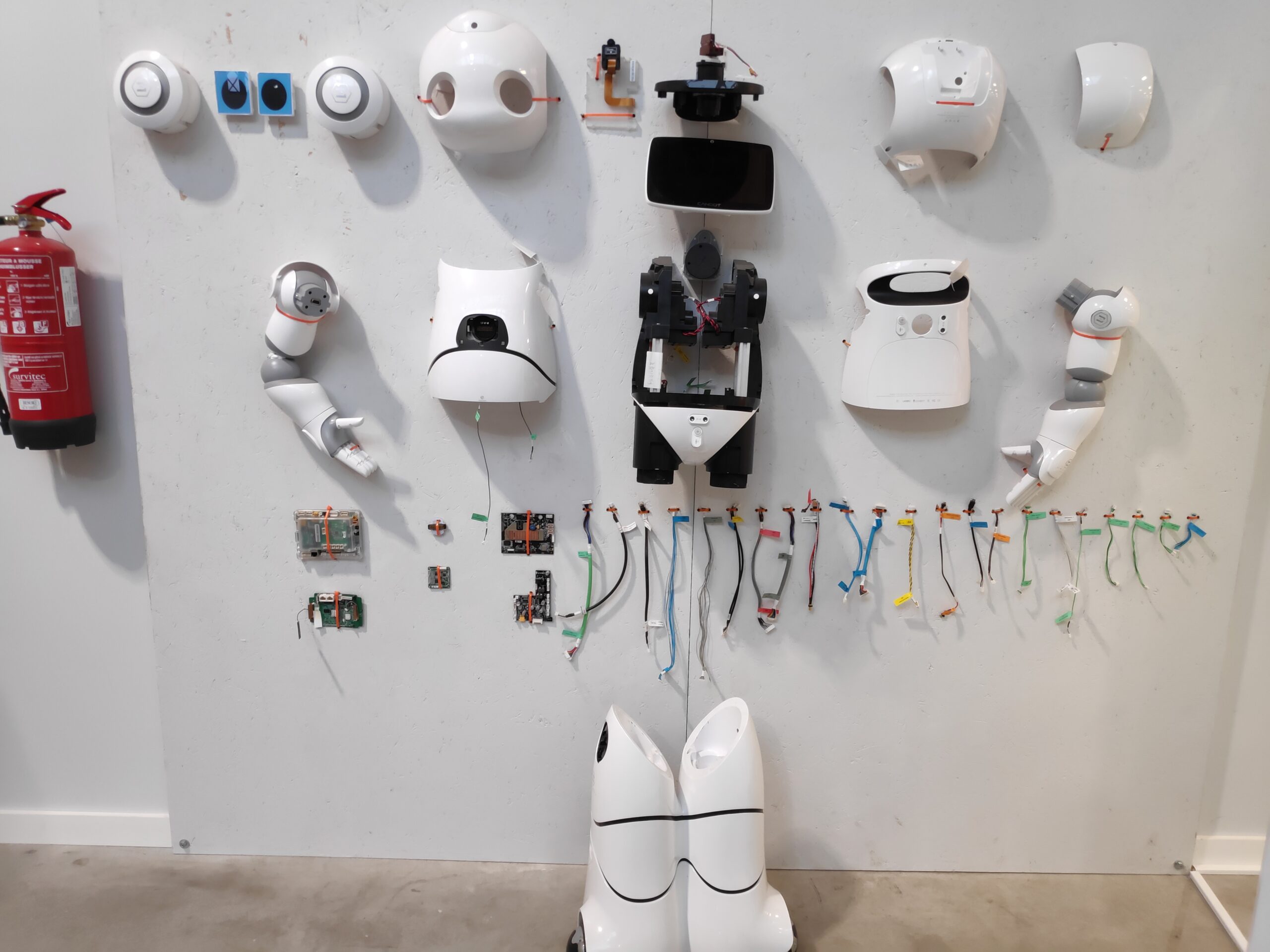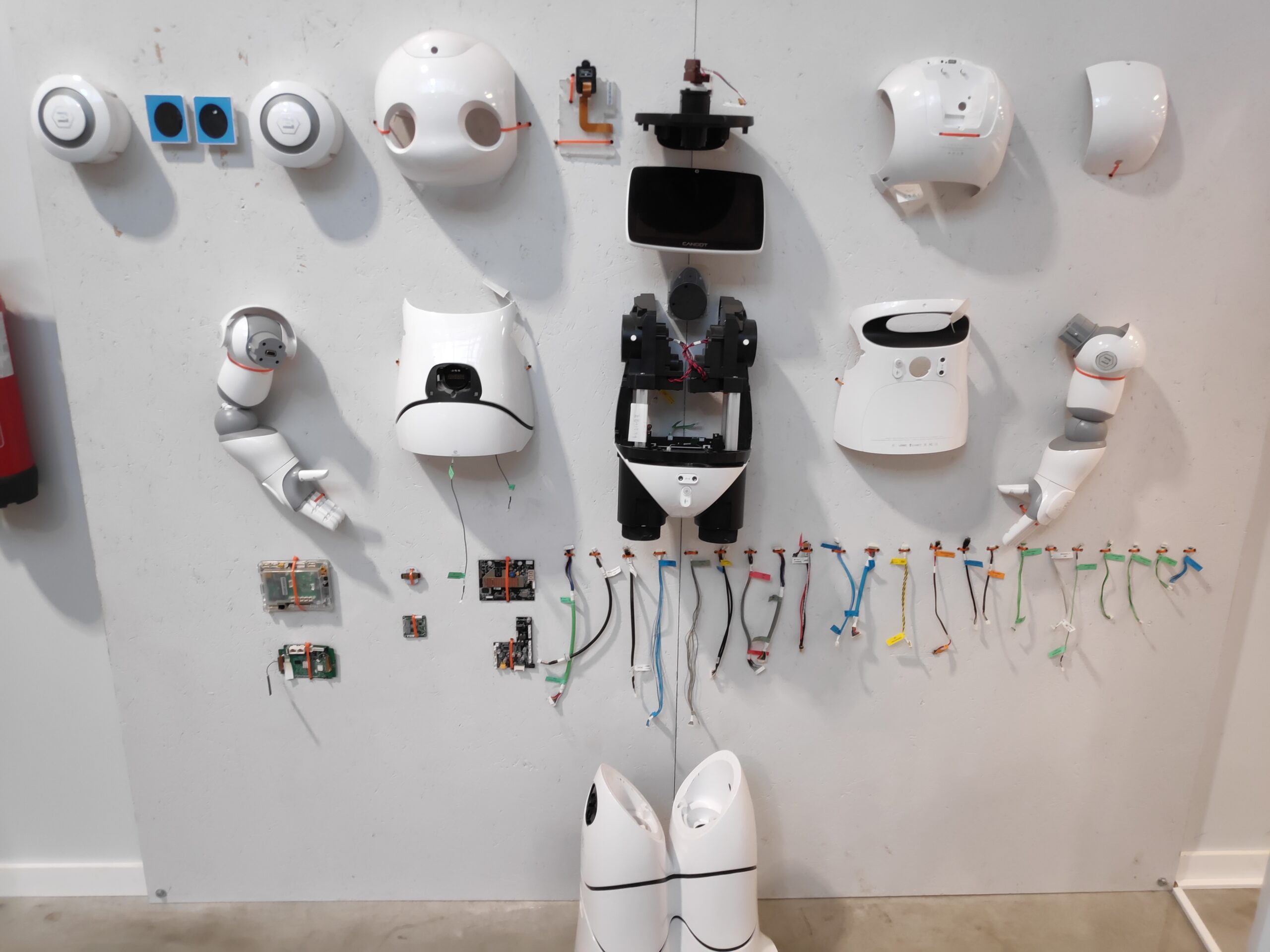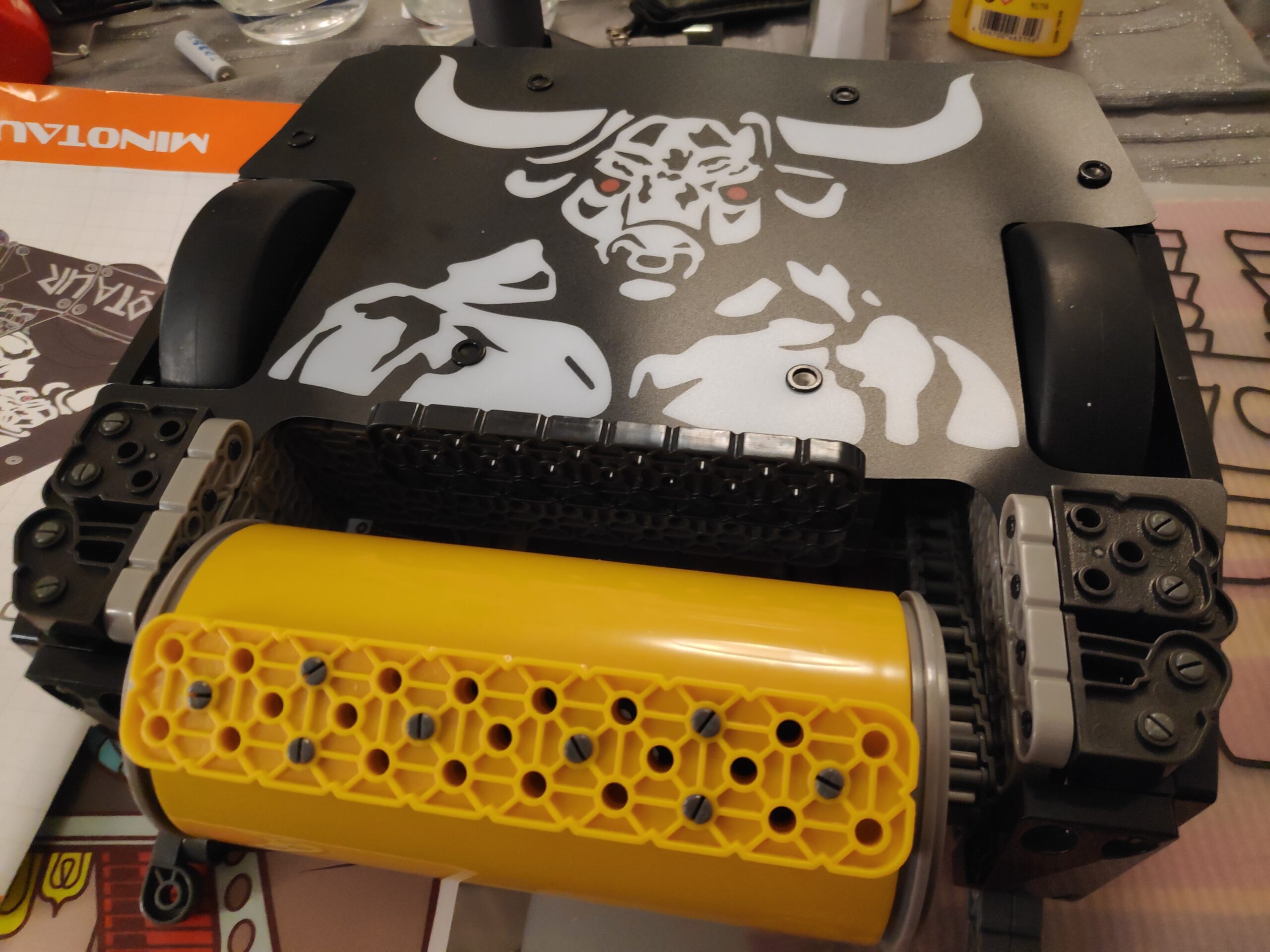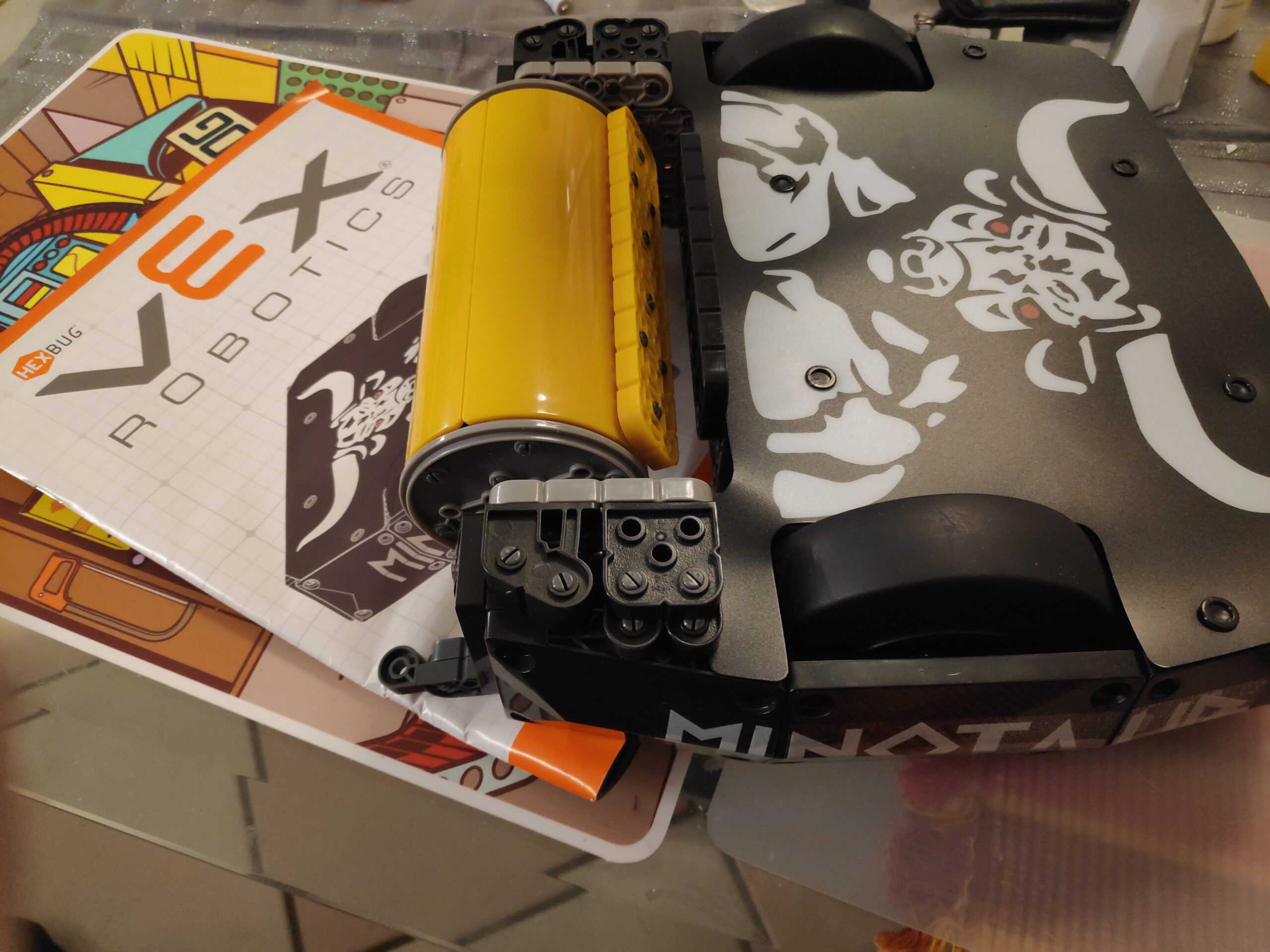Archiv des Autors: Sebastian Trella
Engineered Arts to Unveil New Humanoid Robot at CES 2022
The Ameca humanoid robot combines AI with AB (Artificial Body) for relatable natural human gestures and upgradable modular mechanics via cloud-managed API development tool kit
LAS VEGAS—December 3rd, 2021—CES 2022 — Engineered Arts, a UK company that creates the most memorable interactive character experiences, today announced its latest humanoid robot named Ameca (pron. Am-ek-uh). Through 20 years of increasing robotics innovation, the Ameca series features ground-breaking advancements in movement and natural gestures, intelligent interaction, and a future-proof software system designed to embrace artificial intelligence and computer vision with adaptive learning—giving users an API customization pathway never before available.
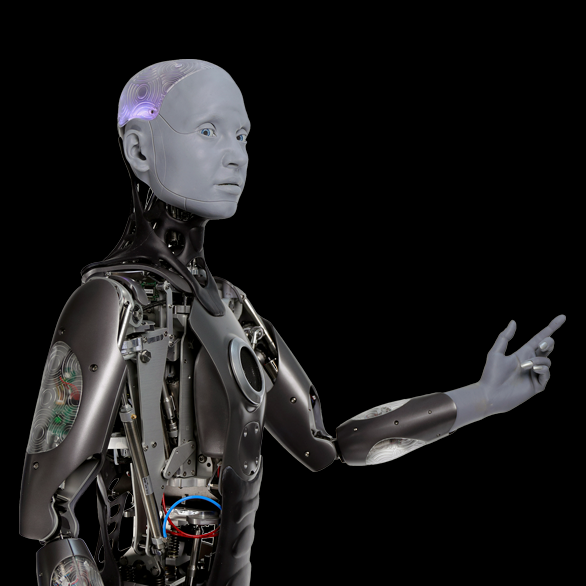
Engineered Arts’ Ameca humanoid robot will take center stage at CES 2022 in Las Vegas at the Great Britain and Northern Ireland Pavilion in Tech West Hall G—lower level of the Venetian Expo Center, at Booth 62502 & 62524 from January 5th- 8th.
Complete details, images, videos and specs of the Ameca humanoid robot are available at: https://www.engineeredarts.co.uk/robot/ameca/.
“A humanoid robot will always instil an image of what the future may hold. Ameca represents a perfect platform to explore how our machines can live with, collaborate, and enrich our lives in tomorrow’s sustainable communities,” said Morgan Roe, Director of Operations at Engineered Arts. “Ameca integrates both AI with AB (artificial body) for advanced, iterative technologies that deliver superior motion and gestures, all housed in a human form and robotic visage for a non-threatening, gender-neutral integration into an inclusive society,” added Roe.
The Engineered Arts team can create any robot figure in as little as four months. All Engineered Arts Ameca, Mesmer series and RoboThespian robot creations are available for ownership or through an integrated end-to-end rental program for special limited engagements and showcases across the world. To learn more about the humanoid robots from Engineered Arts visit: https://www.engineeredarts.co.uk/
About Engineered Arts
Engineered Arts, Ltd. integrates a talented team of engineers and creatives, working together to produce technology that lives and breathes engagement, imagination, and entertainment. At the heart of its robotic humanoids is the Tritium operating system, a cloud-based operating system that drives robot animation, interaction, maintenance links and content distribution. For more information visit: https://www.engineeredarts.co.uk/
Kamigami Robots Bokken Timelapse Build
Public to Meet Beomni Humanoid Robot at 2022 Consumer Electronics Show
LAS VEGAS (PRWEB) JANUARY 04, 2022
Beyond Imagination, in conjunction with Zero Gravity Corporation (ZERO-G), will be showcasing its cutting-edge “Beomni” humanoid robot at the January 2022 Consumer Electronics Show. This will be the first time the robot has been shown to the general public.

“I’ve been involved and taken ZERO-G flights with Dr. Peter Diamandis since the inception of ZERO-G. They are an ideal partner for BEYOND IMAGINATION,” says Dr. Harry Kloor, Founder and CEO of BEYOND IMAGINATION, “because our remote-piloted robot has the dexterity to perform any task and even learn to execute complex sequences autonomously, saving time and reducing risk.”
Beomni is one of the world’s most advanced general-purpose humanoid robots, with an evolving “AI Brain” that enables it to assist its human pilot in performing a limitless number of tasks.
For example, Beomni can help perform scientific experiments in challenging environments such as microgravity. Working together with ZERO-G, BEYOND IMAGINATION plans to deploy custom versions of its robot that can perform experiments in the ZERO-G aircraft while experimenters remain safely on the ground. Leveraging Beomni’s low-latency remote video feed and natural controls, experimenters will be able to manipulate their equipment from afar as if they are actually on the aircraft. Adds Dr. Kloor, “as a scientist experienced with microgravity experiments, I know that the ability to manipulate a microgravity experiment from the ground is a game-changer. Our partnership will enable more complex actions to be performed and multiple experimenters to participate.”
Ease of use is one of Beomni’s claims to fame. Past experience shows that new users acclimate to piloting the robot in just a few minutes. At the show, invited guests will be able to pilot the robot using nothing more than a virtual reality headset and a pair of special gloves.
BEYOND IMAGINATION’s robots are operated via a human partnership with an AI Brain that augments and enhances human capabilities. This AI includes multiple “lobes”, each related to a specific skill or set of skills that the robot can perform. Over time, on a task-by-task basis, Beomni’s AI Brain learns, evolving from assisting with tasks to semi-autonomous and then to fully autonomous operation.
This collaboration is a first step toward broadening access to microgravity opportunities for consumers, corporate customers, entertainment companies, and scientific research teams at NASA and beyond.
“We are delighted to be able to partner with a visionary company like BEYOND IMAGINATION,” said ZERO-G’s CEO Matt Gohd. “Their state-of-the-art robot and AI will enable us to develop unique and unmatched new services. Working together, we see a wide range of applications for private and public space agencies around the globe.”
Since operating its first commercial flight in 2004, ZERO-G has given more than 17,000 flyers the opportunity to feel true weightlessness. As the interest in commercial space travel increases, the flights offered by ZERO-G are the only FAA-approved opportunities in the U.S. for civilians to understand weightlessness. At a fraction of the cost of consumer space flights in development, ZERO-G is paving the way for the general public to enjoy the wonders of interstellar travel. Each ZERO-G mission is designed for maximum fun. The aircraft’s interior is a zero-gravity playroom, complete with padded floors and walls and video cameras to record the unforgettable moments.
Beomni has applications in space-based and lunar operations and construction as well as terrestrial activities ranging from bio-manufacturing & logistics to aircraft & energy sector inspections to health care & senior care services. BEYOND IMAGINATION recently completed an on-site pilot study at TRU PACE (Program of All-Inclusive Care for the Elderly) Center with Beomni and has been busy scheduling more pilot studies across a range of industries for early 2022.
About BEYOND IMAGINATION
Beyond Imagination, Inc. is a robotics and AI platform company that is focused on bringing humanoid robots to market rapidly. By partnering a human pilot with an evolving AI Brain, we will soon be able to deploy our Beomni Robotics platform across a wide range of commercial applications. Our practical, real-world approach is closer to that of Tesla, which released its vehicles and then built AI from the data that they collected, rather than that of other companies that are focused in narrow R&D domains.
Founded by leading innovators in AI and robotics, and strengthened by a solid patent portfolio, Beyond Imagination, Inc. is poised to revolutionize life and fundamentally change the way we work, travel and engage with others around the world.
Beyond Imagination is taking advance orders and is always open to strategic partnerships and investments from qualified investors. In-person demos are available by appointment for media and investors. Additionally, Beomni is available for television appearances in the greater Denver/Boulder area. Potential partners for pilot studies in medicine and beyond are encouraged to discuss their specific use cases with the company.
For more information visit http://www.beomni.ai
About ZERO-G
Zero Gravity Corporation is a privately held space entertainment and tourism company whose mission is to make the excitement and adventure of space accessible to the public. ZERO-G is the first and only FAA-approved provider of weightless flight in the U.S. for the general public; entertainment and film industries; corporate and incentive markets; non-profit research and education sectors; and the government. ZERO-G’s attention to detail, excellent service and quality of experience combined with its exciting history has set the foundation for the most exhilarating adventure-based tourism.
For more information about ZERO-G, please visit http://www.gozerog.com.
Kosmos Monty, a balancing Robot
Clementoni RollingBot. A Rolling Panda Robot!
Robots-Blog visiting Robotland in Essen, Belgium
Hexbug Vex Robotics Battlebots – Minotaur Timelapse Build
Hexbug Vex Robotics Battlebots – Minotaur Timelapse Build. Find the latest News on robots drones AI robotic toys and gadgets at robots-blog.com. Follow us on our Blog Instagram Facebook Twitter or our other sites. Share your robotics ideas and products with us. #robots #robot #omgrobots #roboter #robotic #mycollection #collector #robotsblog #collection #botsofinstagram #bot #robotics #robotik #gadget #gadgets #toy #toys #drone #robotsofinstagram #instabots #photooftheday #picoftheday #followforfollow #instadaily #battlebots #minotaur #vex #hexbug
LattePanda 3 Delta- the User-friendly and Cost-effective hackable Computer for your Mega Creativity
The LattePanda team launched its new generation of LattePanda 3 Delta on Kickstarter on November the 2nd 2021. The crowd funding campaign has already blasted past its required pledge goal raising over $200,989 thanks to over 731 backers with still 3 days remaining. Building on the company’s previous mini PC systems, the new LattePanda 3 Delta computer is powered by the latest Intel 11th generation N5105 mobile quad-core processor offering up to 2.9GHz burst frequency. The ultra-thin design measures just 16 mm in thickness, enabling you to use the small form factor mini PC for a wealth of different projects.

Hardware and Spec
The LattePanda 3 Delta is a 125 mm x 78 mm x 16mm Single Board Computer with CPU, memory, storage and Arduino components on the one side while up to 42 expandable interfaces for peripherals and GPIOs sit on the other. The added bonus of having a Gigabit Ethernet port onboard guarantees the device can connect to the Internet at extremely high speed.
Key Specification:
Processor: Intel N5105
CPU: 4-Core, 4-Thread, 4MB L3 Cache, 2.00~2.90 GHz
GPU: Intel UHD Graphics, 24 EUs, 450~800 MHz
Memory: 8GB LPDDR4 2933MHz RAM
Storage: 64GB eMMC
External Storage:
M.2 M Key: PCIe3.0 x2, Support NVME SSD;
M.2 B Key: SATA3, Support SATA SSD;
TF Slot: Support TF Card
Connectivity:
WiFi6(802.11ax): Intel AX201, up to 2.4Gbps
Bluetooth 5.2;
Gigabit Ethernet: Intel I211-AT, up to 1.0Gbps
Exteral Connectivity: M.2 B Key
USB2.0 lane: Support 4G Module;
USB3.0 lane: Support 5G Module
Video Output:
HDMI 2.0b;
DP 1.4 (via USB Type C);
eDP(with touch)
Audio I/O:
3.5mm Audio Jack(with Mic);
2.54mm Female Header
USB Port:
1x USB 3.2 gen2 x1;
2x USB 3.2 gen1 x1;
1x USB Type C
OS Support:
Windows 10;
Windows 11;
Linux Ubuntu
Co-processor: Atmel ATmega32U4
Power Input:
USB Type C PD;
12V DC
GPIO Female Header:
2x 50pin GPIOs: including Audio Output, USB2.0, RS232, RTC, Power Management, Status Indication, Arduino Pinout, 5V&3.3V Power Output, etc.

In Use
LattePanda 3 Delta has an Intel Celeron N5105, a Windows 10 processor that replaces the Celeron N4100. The Celeron N5105 features improved UHD Graphics and higher performance than the Celeron N4100. LattePanda 3 Delta offers 2x better processing performance and 3x faster graphics performance. With such excellent performance, you can use it to watch 4K HDR videos smoothly and even play some heavy games.
LattePanda 3 Delta contains up to 8 GB of LPDDR4 RAM and 64 GB of eMMC 5.1 flash storage, which ensures that you can load a large number of web pages in Chrome, or run multiple virtual machines fastly and smoothly.
LattePanda 3 Delta uses Wi-Fi 6 whose transfer speed is 2.7 times faster than Wi-Fi 5. Besides, LattePanda 3 Delta has a Gigabit Ethernet port onboard. You can connect to the Internet at extremely high speed.
LattePanda 3 Delta is compatible with both Windows 10 and Linux OS. Windows 11 can also be run on LattePanda 3 Delta. You can select various OS freely based on your project. No matter what operating system you use, the blue screen or crash is inevitable. LattePanda 3 Delta designs a “Watchdog Timer”. When some problems occur, LattePanda 3 Delta will restart automatically and go back to work normally.
For those applications relying on battery, independent control of the power of all the USB ports and other power connectors are essential. LattePanda 3 Delta has made it possible. You can control the USB power and 5V power ON or OFF based on your project.
Being a hackable computer, the LattePanda 3 Delta is a perfect solution for home automation projects, robotics, in car entertainment systems, education and smart industrial systems. Below is a quick overview of all the available Kickstarter packages, components, operating systems, and pricing.
Pledges are still available from £169 or roughly $229 or CAD $284 and shipping is expected to take place during March 2022. Options are available to receive the computer with Windows 10 Pro operating system license for a little extra as well as being available with a UPS HAT for £206 or $279 or CAD $346 with shipping expected to be a month later during April 2022.For more information, full specifications and purchasing options jump over to the official Kickstarter crowdfunding campaign page by following the link below.
Wall climbing robot can reduce workplace accidents
A wall climbing robot made by HausBots can reduce workplace accidents, as it can be used for inspection and maintenance tasks such as building and infrastructure inspection and surveying or even painting.
However, to make sure the robot itself would work and is safe to use researchers from the WMG SME group helped the local business design and test the robot
The robot is now on the market, after a four-year journey from a garage in Bournville to Singapore
A novel wall climbing robot, built designed and created by Birmingham based HausBots with the help of WMG at the University of Warwick is on the market, and could reduce the number of workplace accidents.
HausBots is a Birmingham based company who are on mission to use technology to protect and maintain the built environment. They have designed, built and created an innovative wall-climbing robot, that can climb vertical surfaces and be used for inspection and maintenance tasks such as building and infrastructure inspection and surveying or even painting.
The idea of the HausBots started in the co-founder’s garage, and with the help of the WMG SME team the robot was bought to life, as the team were able to help with building the prototype and testing the technology.
Four years ago, when the first prototype was developed researchers at WMG, University of Warwick worked with HausBots on the circuit motor controls and designed the system to help them get production ready thanks to the Product Innovation Accelerator scheme with CWLEP.
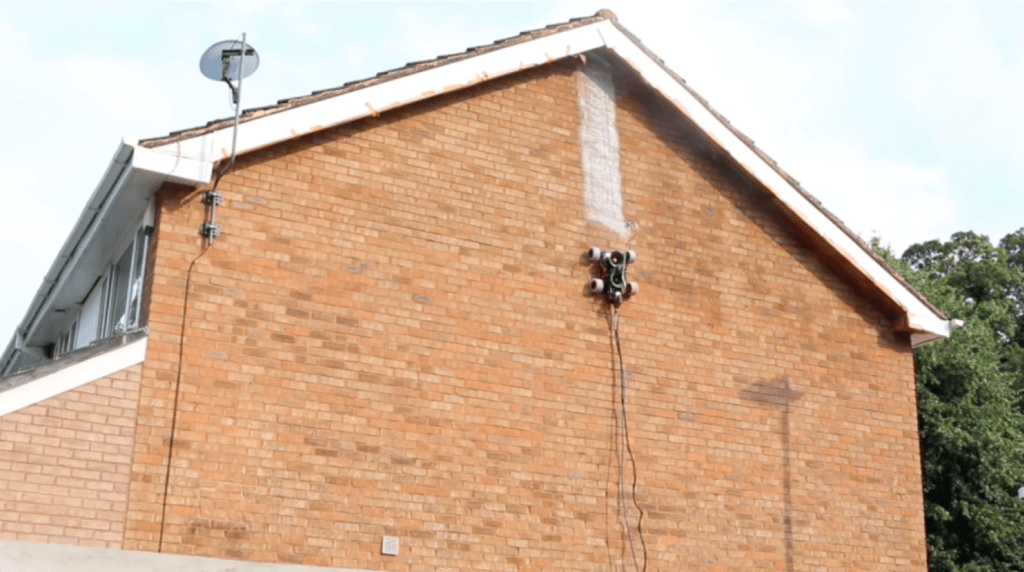
One the key uses of the HausBots is to help reduce the number of workplace accidents, in the US 85,000 workers fall from height every year, of which 700 of them will be fatal. The accidents also cost insurance companies over $1bn in claims every year, therefore not only does reducing the amount of accidents mean less injuries and trauma, but also means there’s a huge economic saving.
However, to ensure the robot itself doesn’t fall it had to undergo extensive electro-magnetic compatibility (EMC) testing to make sure the fans, which essentially attach it to the surface arefunctioning correctly.
The WMG SME team tested the robot by placing it in the EMC chamber and assessing how it responds to noise and to make sure it didn’t emit any unwanted noise into the atmosphere itself. Using amplifiers to simulate noise and analysers, the researchers were able to detect any unwanted interference and emissions with the robot and record results.
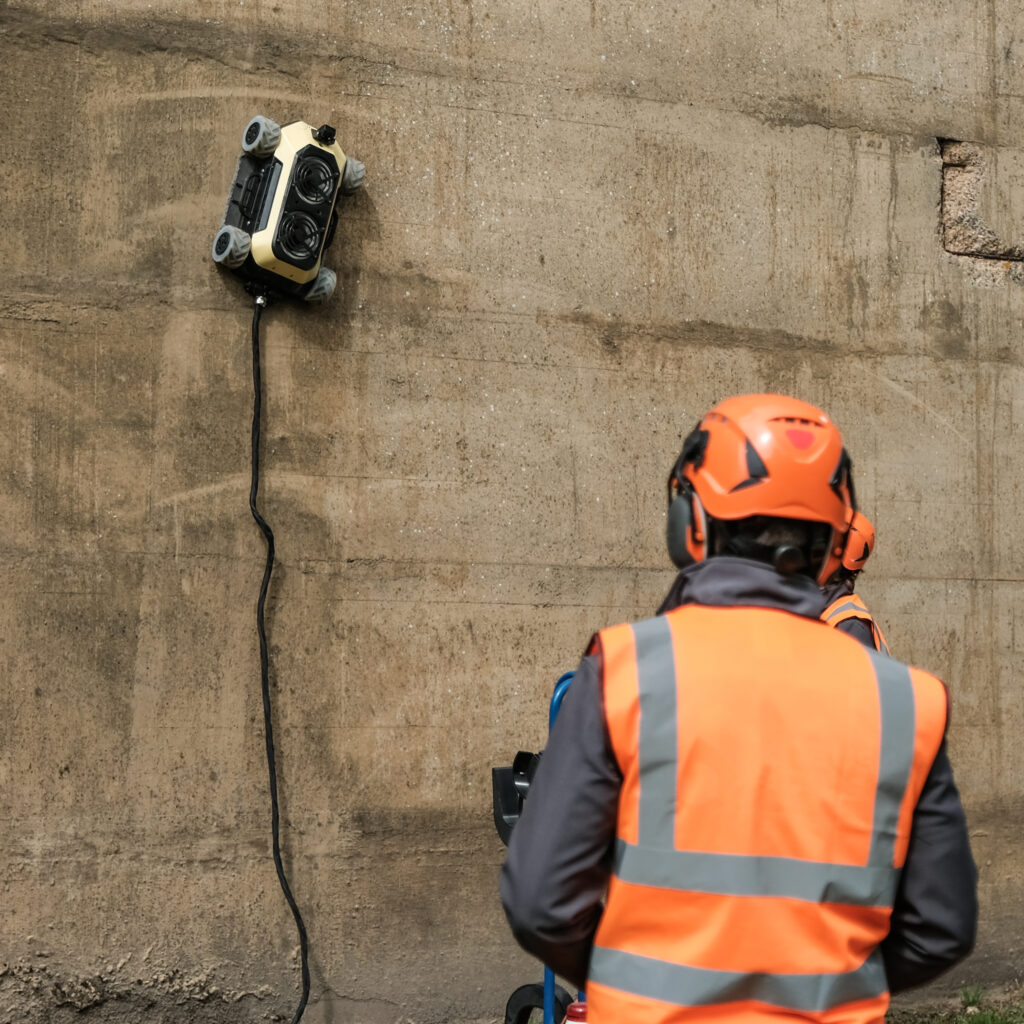
Dr David Norman, from the WMG SME group at the University of Warwick comments:
“It has been a pleasure to be with HausBots and help them develop their product, the concept of the robot is incredible, and could save lives and reduce the number of workplace accidents.
“Our facilities and expertise have helped HausBots develop a market-ready product, which is now on the market and has carried out many jobs from painting and cleaning the graffiti off the spaghetti junction in Birmingham. We hope to continue working with them in the future and can’t wait to see where they are this time next year.”
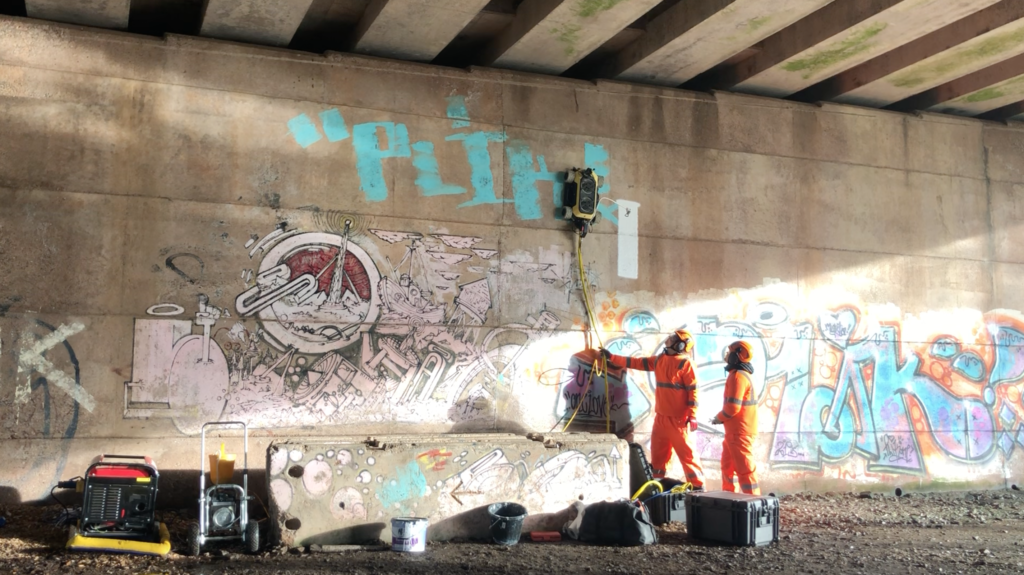
Jack Crone, CEO and Co-Founder of HausBots comments:
“The WMG SME group have helped us from day one, by helping us build the prototype all the way to making sure the robot safely sticks to the wall and carries out its job efficiently.
“We have worked tirelessly over the last 3 years to make HausBot, and we are incredibly excited to have sold our first one to a company in Singapore, we hope this is the first of many that will also help reduce numbers of workplace accidents.
“Going forward we hope to continue our work with WMG at the University of Warwick to make more robots for other uses that can reduce harm to humans.”
